HVAC Systems
Understanding Differences: HVAC Systems Versus Heat Pumps

We’ve all felt the necessity for effective heating and cooling solutions, yet were you aware that HVAC systems and heat pumps provide distinct alternatives?
In this article, we explore the key differences between these two options. From understanding the components and working principles to comparing energy efficiency and costs, we delve into the technical details to help you make an informed choice.
So, let’s dive in and uncover the fascinating world of HVAC systems versus heat pumps.
Key Takeaways
- HVAC systems consist of components such as thermostats, furnaces, air conditioners, and air ducts.
- Heat pumps offer energy efficiency, cost savings, and environmental friendliness.
- Heat pumps reduce the need for separate heating and cooling systems.
- Heat pumps are more energy-efficient compared to traditional HVAC systems.
Types of HVAC Systems
In this section, we’ll discuss the different types of HVAC systems.
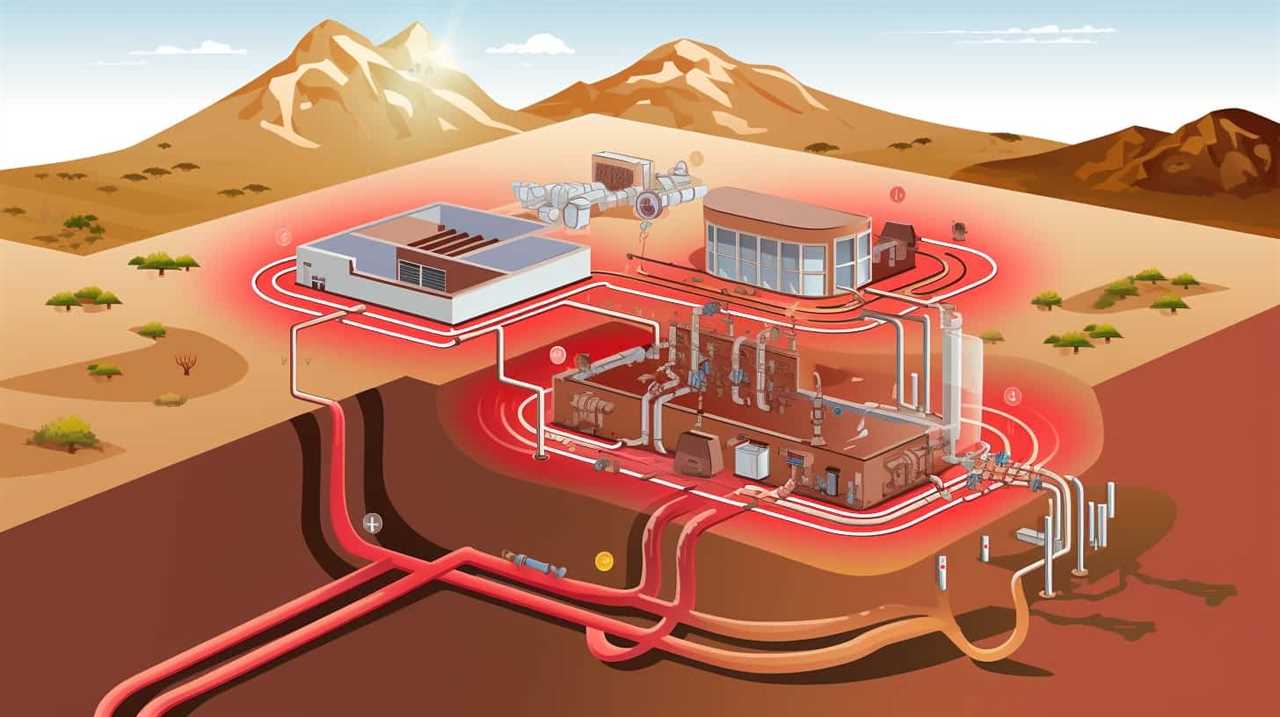
When it comes to heat pumps, there are three main types: air-source, ground-source, and water-source heat pumps.
Air-source heat pumps are the most common and work by extracting heat from the outside air and transferring it indoors. They can provide both heating and cooling, making them versatile.
Ground-source heat pumps, also known as geothermal heat pumps, utilize the stable temperature of the ground to provide heating and cooling. They’re highly efficient and can reduce energy consumption.
Water-source heat pumps use water as a heat source or heat sink. They’re commonly used in areas with access to a water source, such as lakes or ponds.

The advantages of heat pumps include energy efficiency, cost savings, and environmental friendliness. They can provide both heating and cooling, reducing the need for separate systems. Additionally, they’re more environmentally friendly compared to traditional HVAC systems, as they use renewable energy sources.
Components of HVAC Systems
Now let’s take a closer look at the components of HVAC systems. Understanding the basics of an HVAC system is crucial in order to grasp the functionality of each component.
Key components such as the thermostat, furnace, air conditioner, and air ducts all play a vital role in regulating temperature, maintaining indoor air quality, and ensuring proper airflow throughout the space.
HVAC System Basics
We’ll start by discussing the components of HVAC systems. These systems consist of several key elements that work together to provide heating, ventilation, and air conditioning for a building. Here are the main components you’ll find in an HVAC system:

-
Heating Unit: This is typically a furnace or a heat pump that generates heat to warm the air in the building during colder months. Proper installation and regular maintenance of the heating unit are essential to ensure its efficient and safe operation.
-
Cooling Unit: The cooling unit, usually an air conditioner or heat pump, cools and dehumidifies the air during warmer months. Regular maintenance, such as cleaning the air filters and checking refrigerant levels, can help optimize its performance.
-
Ductwork: Ducts distribute the conditioned air throughout the building. Proper design and insulation of the ductwork are crucial for efficient airflow and temperature control.
Key Components Explained
Let’s dive into the key components of HVAC systems, which include the heating unit, cooling unit, and ductwork.

The heating unit is responsible for generating and distributing heat throughout a space, typically using a furnace or a heat pump.
The cooling unit, on the other hand, removes heat from the air and cools it down using a refrigeration cycle. This unit usually consists of an air conditioner or a heat pump.
Lastly, the ductwork serves as a network of channels that transport heated or cooled air from the HVAC system to different areas of a building.
Analyzing these key components allows us to understand the advantages of heat pumps, such as their ability to provide both heating and cooling functions.
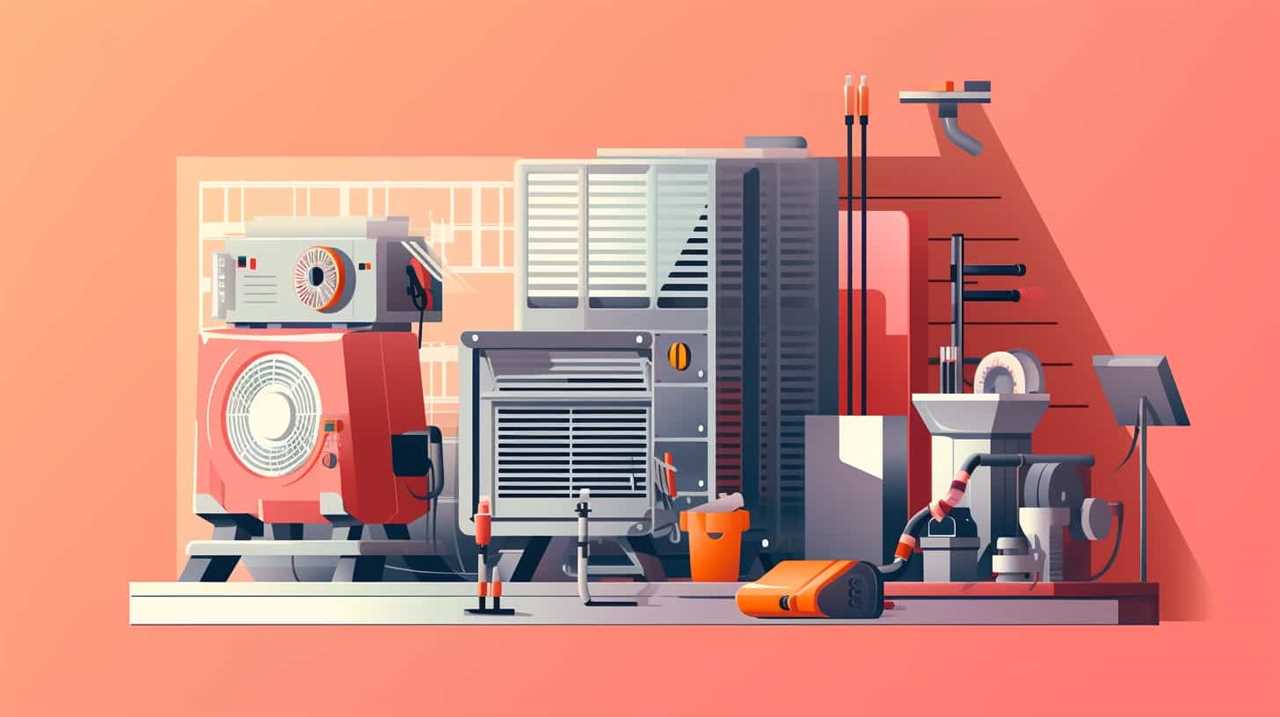
Now, let’s explore the function of each component.
Function of Each Component
Each component of HVAC systems has a specific function that contributes to the overall heating, cooling, and ventilation of a space. Understanding the function of each component is crucial for maintaining the efficiency and effectiveness of the system. Here are the key components and their functions:
-
Thermostat: This component serves as the control center of the HVAC system. It senses the temperature in the space and signals the heating or cooling mechanism to turn on or off accordingly. The thermostat also allows users to set their desired temperature and control the system.
-
Furnace: The furnace is responsible for generating heat in heating mechanisms. It burns fuel, such as natural gas or oil, and uses a heat exchanger to warm the air before distributing it throughout the space.
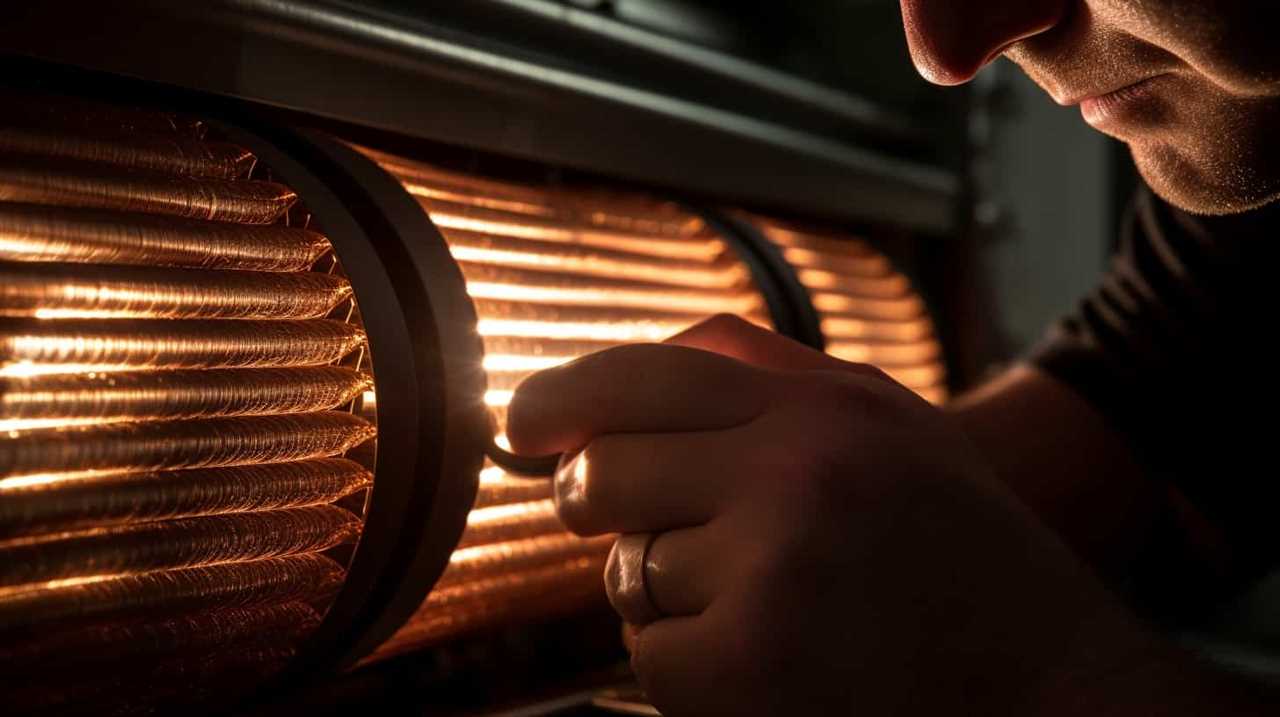
-
Air Conditioner: The air conditioner cools the air by removing heat and humidity from the space. It uses a refrigeration cycle to transfer heat from inside to outside, creating a comfortable indoor temperature.
Working Principles of HVAC Systems
How do HVAC systems work? HVAC systems, or Heating, Ventilation, and Air Conditioning systems, are designed to provide thermal comfort and maintain indoor air quality in buildings. They function by using energy to control the temperature, humidity, and air distribution within a space.
The working principles of HVAC systems involve a combination of mechanical, electrical, and thermodynamic processes. Here is a breakdown of the main components and their functions:
| Component | Function |
|---|---|
| Furnace | Produces heat by burning fuel or using electricity |
| Heat Exchanger | Transfers heat from the furnace to the air |
| Air Conditioner | Removes heat and humidity from the air |
| Ductwork | Distributes conditioned air throughout the building |
Energy Efficiency of HVAC Systems
To assess the energy efficiency of HVAC systems, we need to compare their performance to industry standards and consider factors such as equipment efficiency, insulation, and maintenance.
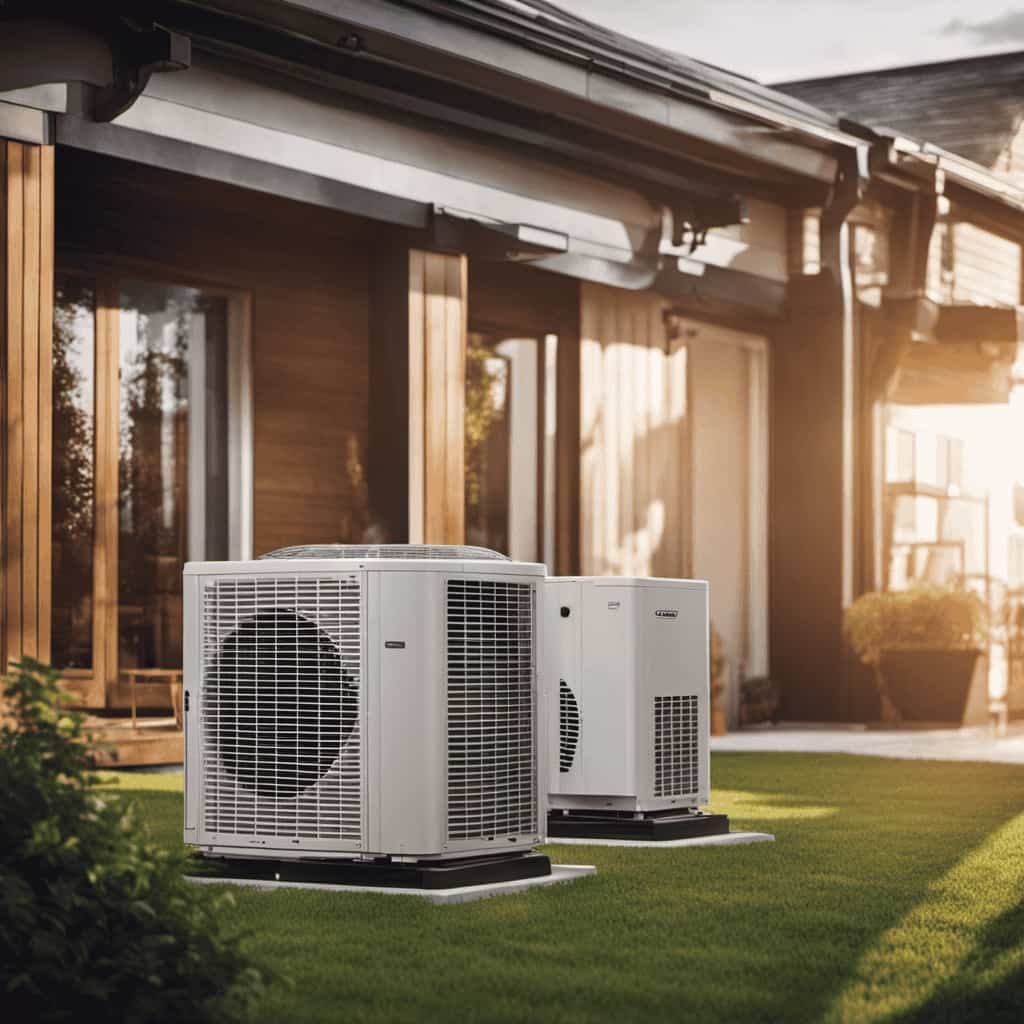
Here are three key considerations when evaluating the energy efficiency of HVAC systems:
-
Equipment Efficiency: The efficiency of the HVAC equipment, such as the air conditioner and furnace, directly impacts energy savings. Higher-rated equipment consumes less energy, resulting in lower utility bills and reduced environmental impact.
-
Insulation: Proper insulation plays a crucial role in preventing heat loss or gain, ensuring that the HVAC system doesn’t have to work harder to maintain a comfortable indoor temperature. Well-insulated buildings require less energy for heating and cooling, leading to significant energy savings.
-
Maintenance: Regular maintenance of the HVAC system is essential for optimal energy efficiency. Dirty filters, leaky ducts, and faulty components can result in decreased performance and increased energy consumption. Routine maintenance helps identify and address issues promptly, maximizing energy savings and minimizing the system’s environmental impact.
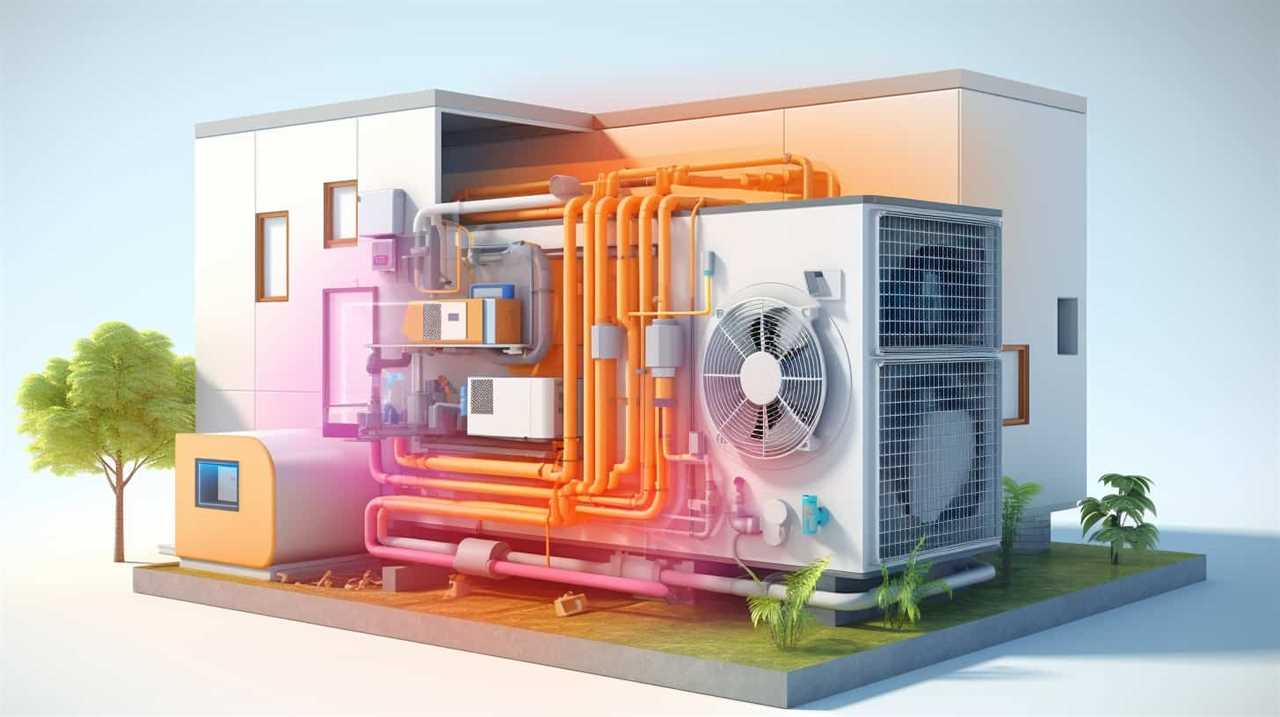
Considering these factors, HVAC systems can achieve significant energy savings and contribute to a more sustainable future.
Now let’s explore the benefits of heat pumps.
Benefits of Heat Pumps
We can highlight the benefits of heat pumps by examining their energy efficiency, versatility, and cost savings.
Heat pumps are known for their exceptional energy efficiency, making them an environmentally friendly choice for heating and cooling. They operate by transferring heat from one place to another, rather than generating heat through combustion, resulting in lower energy consumption. This not only reduces carbon emissions but also helps homeowners save on their energy bills.
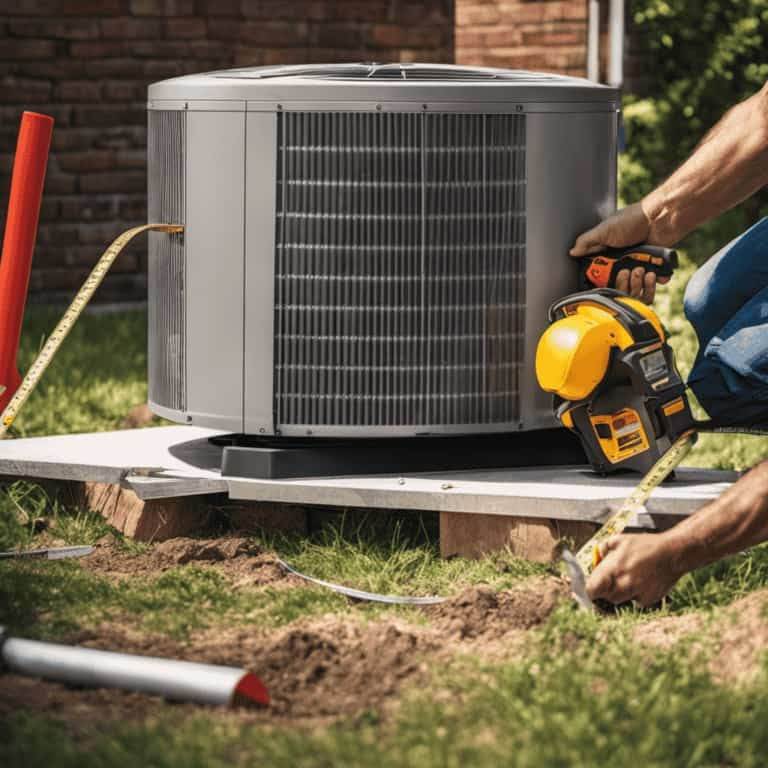
In addition to their energy efficiency, heat pumps are versatile and can be used for both heating and cooling purposes. They can extract heat from the air, ground, or water, providing efficient heating and cooling solutions in various climates.
With their energy-saving capabilities and versatility, heat pumps offer significant benefits to homeowners and contribute to a more sustainable future.
As we explore the differences in heating capabilities, it’s important to understand the advantages that heat pumps bring to the table.
Differences in Heating Capabilities
When comparing the heating capabilities of HVAC systems and heat pumps, there are several important points to consider.
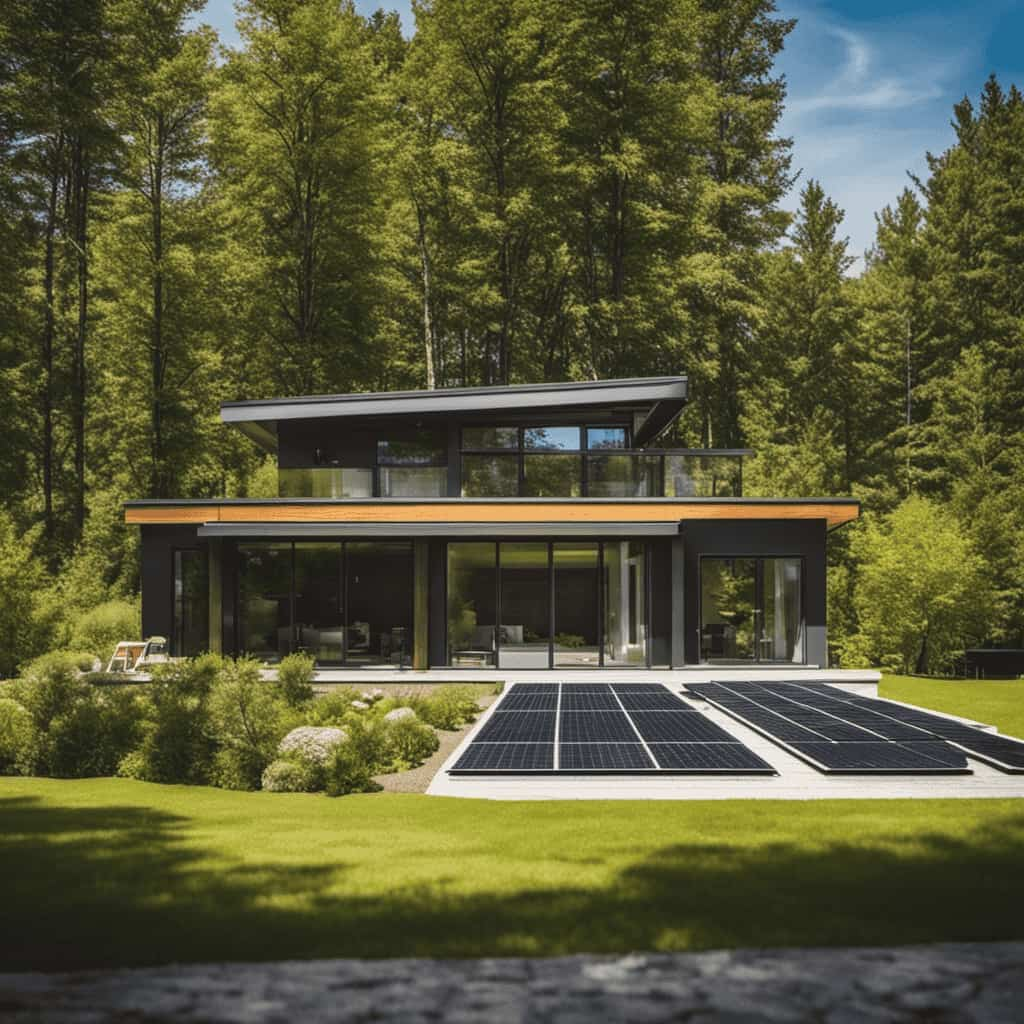
First, efficiency is a crucial factor to examine as it directly affects energy consumption and costs.
Second, cost considerations play a significant role in determining which option is more suitable for your specific needs and budget.
Lastly, climate suitability should be taken into account, as different regions have varying heating demands and conditions that may favor one system over the other.
Efficiency Comparison: HVAC Vs. Heat Pumps
How do HVAC systems and heat pumps differ in terms of their heating capabilities? Here are three key points to consider when comparing their efficiency:
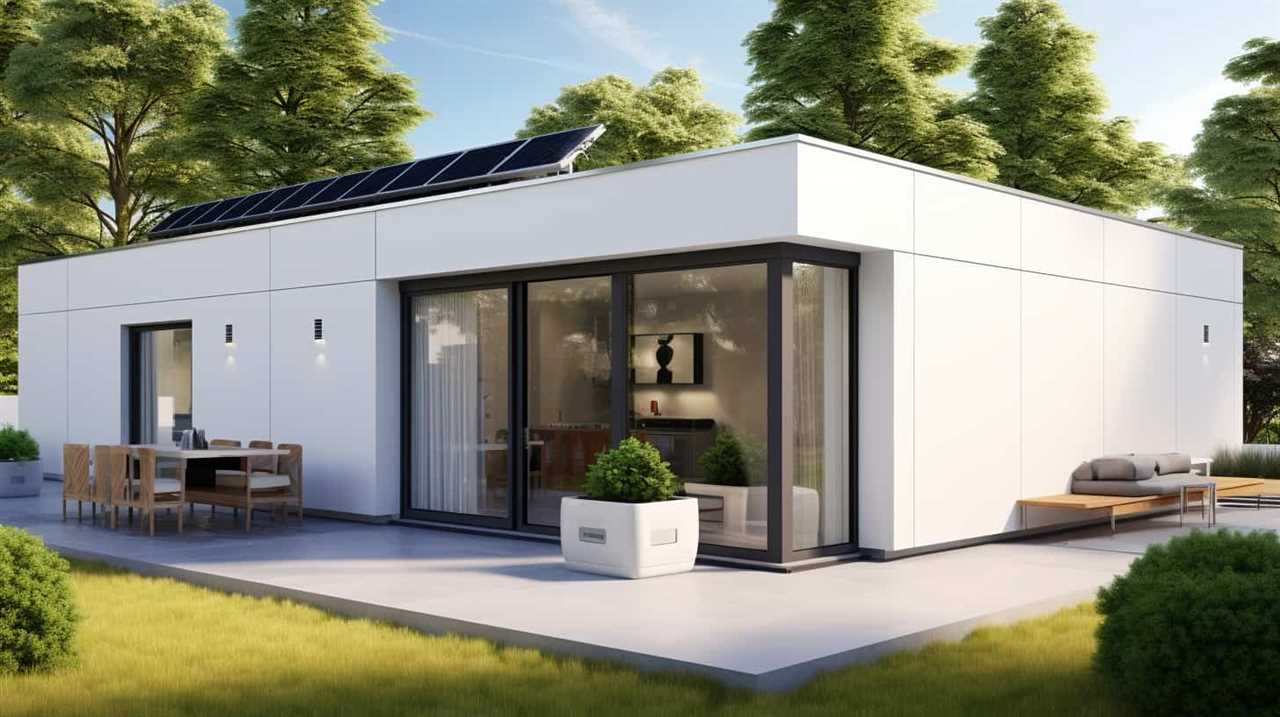
-
Environmental Impact: Heat pumps are more environmentally friendly compared to traditional HVAC systems. Heat pumps use electricity to transfer heat rather than burning fossil fuels, resulting in lower carbon emissions and a reduced impact on the environment.
-
Heating Efficiency: Heat pumps are highly efficient in moderate climates, as they can extract heat from the outside air even in colder temperatures. However, in extremely cold climates, the heating efficiency of heat pumps decreases, and HVAC systems may provide better heating capabilities.
-
Maintenance Comparison: HVAC systems require regular maintenance, including filter replacement and system inspections, to ensure proper functioning. On the other hand, heat pumps require similar maintenance but also need regular defrosting to remove ice buildup during colder weather.
Considering these efficiency factors, it’s important to weigh the environmental impact, heating efficiency, and maintenance requirements when deciding between HVAC systems and heat pumps.
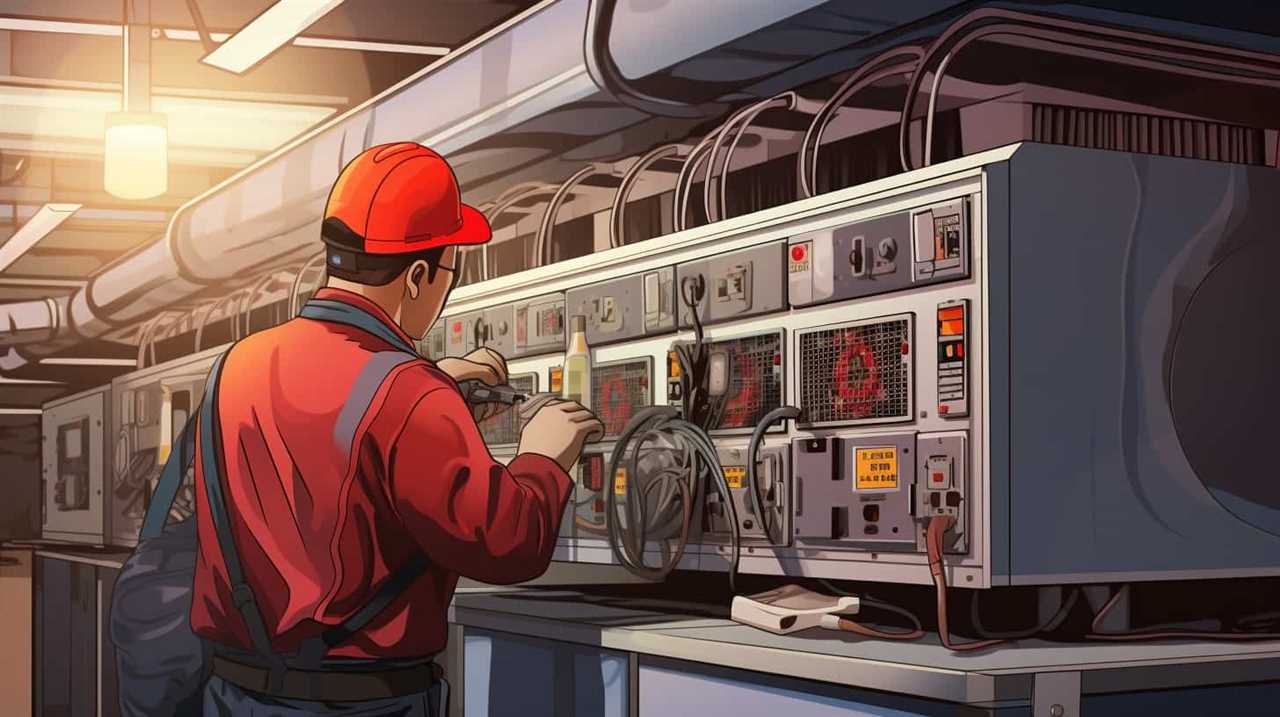
Now, let’s delve into the cost considerations of HVAC systems versus heat pumps.
Cost Considerations: HVAC Vs. Heat Pumps
To compare the cost considerations between HVAC systems and heat pumps in terms of their heating capabilities, let’s examine the differences.
One important factor to consider is energy consumption. Heat pumps are known to be more energy-efficient compared to traditional HVAC systems. Heat pumps use electricity to transfer heat from one place to another, rather than generating heat directly. This allows them to consume less energy while still providing adequate heating. On the other hand, HVAC systems require fuel, such as natural gas or oil, to generate heat. This can result in higher energy consumption and increased costs over time.
Additionally, installation costs can vary between the two systems. Heat pumps typically have higher upfront installation costs due to the need for specialized equipment and labor. HVAC systems, on the other hand, may have lower upfront costs but can have higher long-term maintenance and repair expenses.
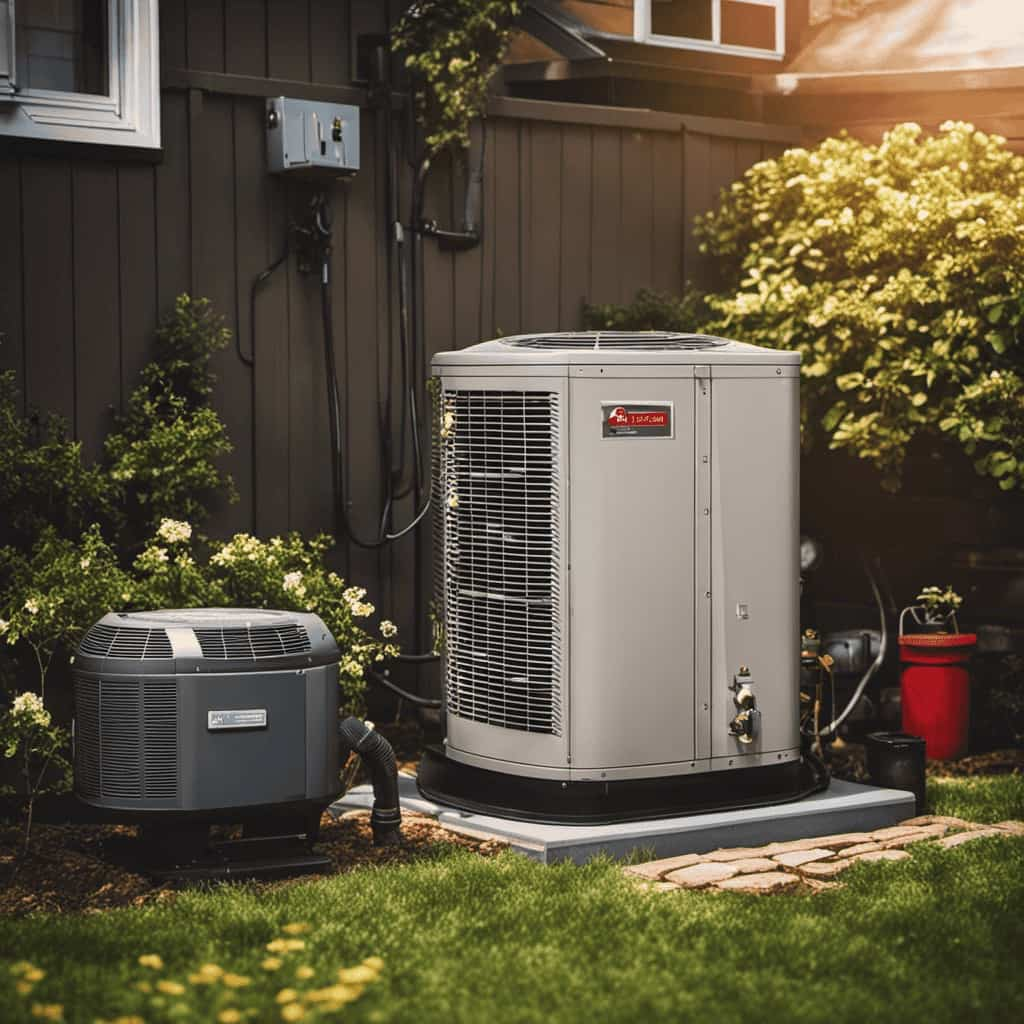
Climate Suitability: HVAC Vs. Heat Pumps
One key difference in heating capabilities between HVAC systems and heat pumps is their suitability for different climates. The geographical limitations of HVAC systems make them more suitable for regions with extreme temperature fluctuations, such as areas with hot summers and cold winters.
On the other hand, heat pumps are ideal for climates with mild winters, as they rely on extracting heat from the outside air and transferring it indoors. This makes heat pumps more energy-efficient and environmentally friendly compared to HVAC systems, which use fuel combustion to generate heat.
However, in extremely cold climates, heat pumps may struggle to extract enough heat from the outdoor air, reducing their efficiency.
Transitioning into the subsequent section about the cooling performance of HVAC systems, it’s important to consider how these systems can effectively cool indoor spaces.

Cooling Performance of HVAC Systems
We rely on HVAC systems for the cooling performance in our homes during the hot summer months. HVAC systems are designed to provide efficient cooling and precise temperature control.
Cooling efficiency is a key factor in the performance of these systems, as it determines how effectively they can cool the indoor space while consuming minimal energy. HVAC systems achieve high cooling efficiency through the use of advanced technology such as variable speed compressors and smart thermostats.
These systems can quickly lower the indoor temperature to the desired level and maintain it consistently, ensuring optimal comfort.
As we move on to the next section, we’ll now explore the cost comparison between HVAC systems and heat pumps, considering factors such as installation, maintenance, and energy consumption.
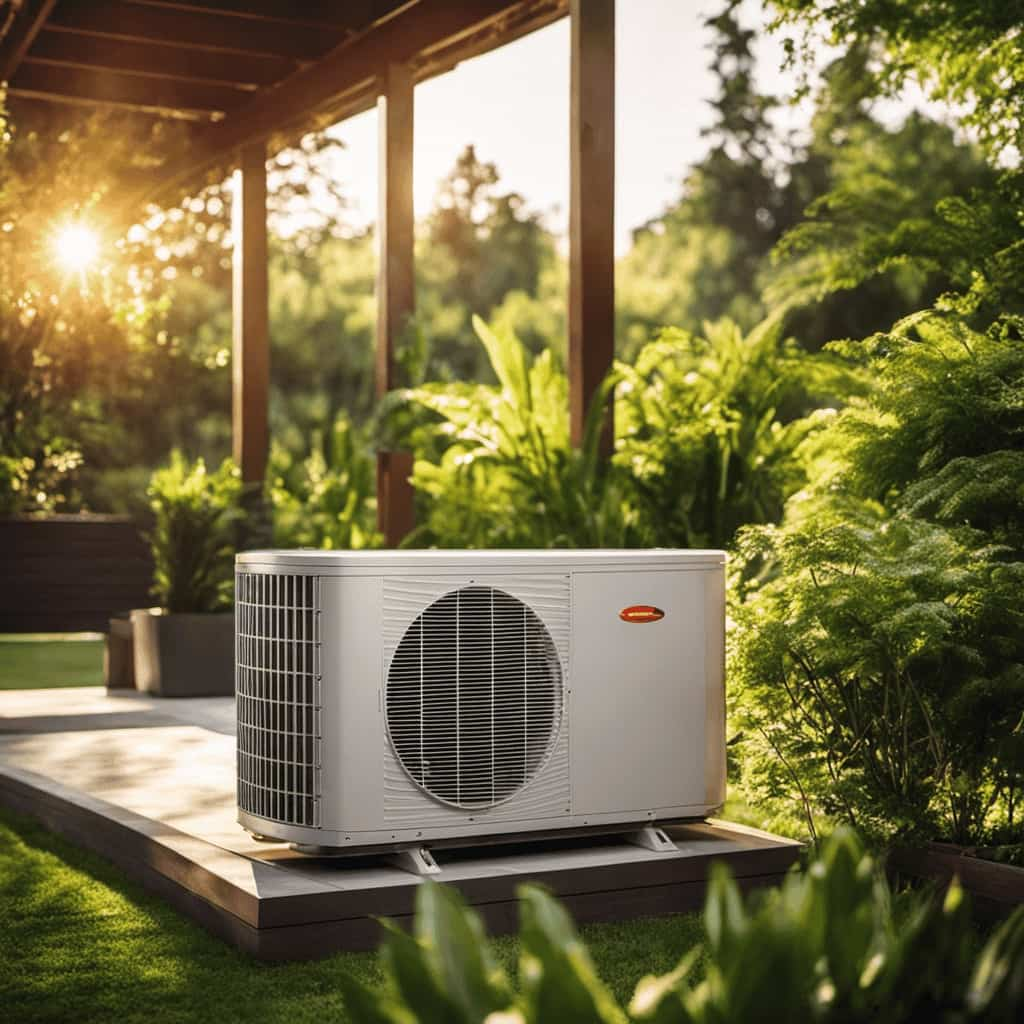
Cost Comparison: HVAC Systems Vs Heat Pumps
When comparing the costs of HVAC systems and heat pumps, it’s important to consider factors such as installation, maintenance, and energy consumption. Here is a breakdown of the cost comparison between the two systems:
-
Installation expenses: HVAC systems typically require more extensive installation procedures, including ductwork and air distribution systems. This can result in higher upfront costs compared to heat pumps, which often have simpler installation requirements.
-
Maintenance: HVAC systems may require more frequent maintenance due to the complexity of their components, such as filters, motors, and compressors. Heat pumps, on the other hand, have fewer moving parts and may require less maintenance over time.
-
Long-term savings: Heat pumps are known for their energy efficiency, as they transfer heat from the outside air to warm the interior space. This can lead to significant long-term savings on energy bills compared to HVAC systems.

Considering these factors, heat pumps may offer lower installation expenses and long-term savings compared to HVAC systems. However, it’s essential to evaluate your specific needs and consult with a professional to determine the most cost-effective solution for your home.
Frequently Asked Questions
Can HVAC Systems Be Used for Both Heating and Cooling Purposes?
Yes, HVAC systems can be used for both heating and cooling purposes. However, heat pumps have distinct advantages for heating and cooling, such as higher energy efficiency compared to HVAC systems.
How Long Do HVAC Systems Typically Last Before Needing to Be Replaced?
HVAC systems typically last for about 15 to 20 years before needing replacement. However, signs of system failure like frequent breakdowns, inadequate cooling or heating, and increased energy bills may indicate the need for earlier replacement.
Are There Any Government Incentives or Rebates Available for Installing HVAC Systems or Heat Pumps?
Government incentives and rebates are available for installing HVAC systems and heat pumps. These programs aim to promote energy efficiency, reduce costs, and minimize environmental impact. The installation process and cost analysis should consider these incentives.

Can HVAC Systems and Heat Pumps Be Integrated With Smart Home Technology?
Yes, HVAC systems and heat pumps can be integrated with smart home technology. However, there are some integration challenges to consider. The benefits of smart home technology include increased energy efficiency and convenience.
What Maintenance and Upkeep Is Required for HVAC Systems and Heat Pumps to Ensure Optimal Performance and Longevity?
Maintenance tips and regular servicing are crucial for optimal performance and longevity of HVAC systems and heat pumps. Neglecting maintenance can lead to decreased efficiency, higher energy costs, and potential system failures.
Conclusion
In conclusion, while HVAC systems and heat pumps both provide heating and cooling functions, they differ in their heating capabilities and energy efficiency.
HVAC systems use a combination of heating and cooling units, whereas heat pumps are designed solely for heating purposes. Additionally, heat pumps offer greater energy efficiency by utilizing renewable energy sources.

Therefore, when considering the cost and environmental impact, heat pumps are a more sustainable choice.
HVAC Systems
Comparing Heat Pump Efficiency: Solutions for Electricity Usage

We have some astonishing statistics to share with you.
When it comes to heat pump efficiency, understanding the key factors impacting electricity usage is crucial.
In this article, we’ll compare energy consumption between heat pumps and traditional heating systems.
But that’s not all – we’ll also delve into optimizing heat pump performance for lower electricity usage and explore energy-saving solutions.
Join us as we uncover the secrets to maximizing efficiency and reducing electricity consumption.
Key Takeaways
- SEER and HSPF ratings indicate the efficiency of a heat pump, with higher ratings indicating better performance.
- Climate, insulation, heat pump size, and thermostat settings all impact the electricity usage of a heat pump.
- Heat pumps are more energy-efficient than traditional heating systems, as they transfer heat rather than relying on combustion processes.
- Optimizing heat pump performance through smart thermostats, insulation improvements, regular maintenance, and airflow optimization can reduce electricity usage.
Understanding Heat Pump Efficiency Ratings
We’ll start by exploring the three main heat pump efficiency ratings.
When it comes to heat pump efficiency, it’s important to understand the standards and measurements used.
The first rating is the Seasonal Energy Efficiency Ratio (SEER), which measures the cooling efficiency of the heat pump over an entire season. The higher the SEER rating, the more efficient the heat pump is.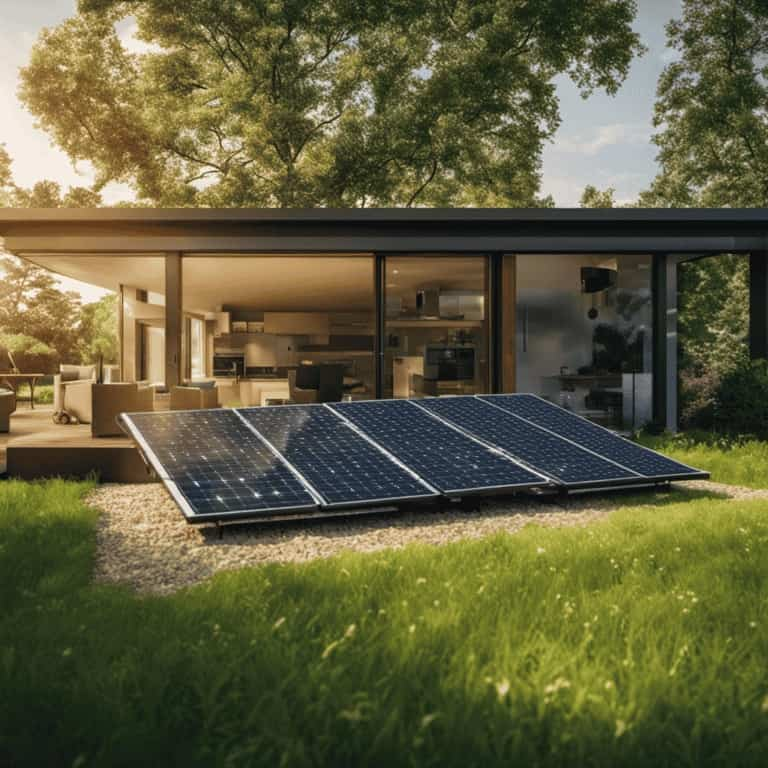
The second rating is the Heating Seasonal Performance Factor (HSPF), which measures the heating efficiency of the heat pump over a season. Again, a higher HSPF rating indicates a more efficient heat pump.
Lastly, we’ve the Coefficient of Performance (COP), which measures the ratio of heat output to the energy input. The higher the COP, the more efficient the heat pump.
Understanding these efficiency ratings is crucial when comparing and selecting a heat pump for optimal energy usage.
Key Factors Impacting Heat Pump Electricity Usage
When considering heat pump electricity usage, there are several key factors that can significantly impact efficiency. To conduct a thorough heat pump energy consumption analysis and maximize efficiency, it’s essential to take into account the following factors: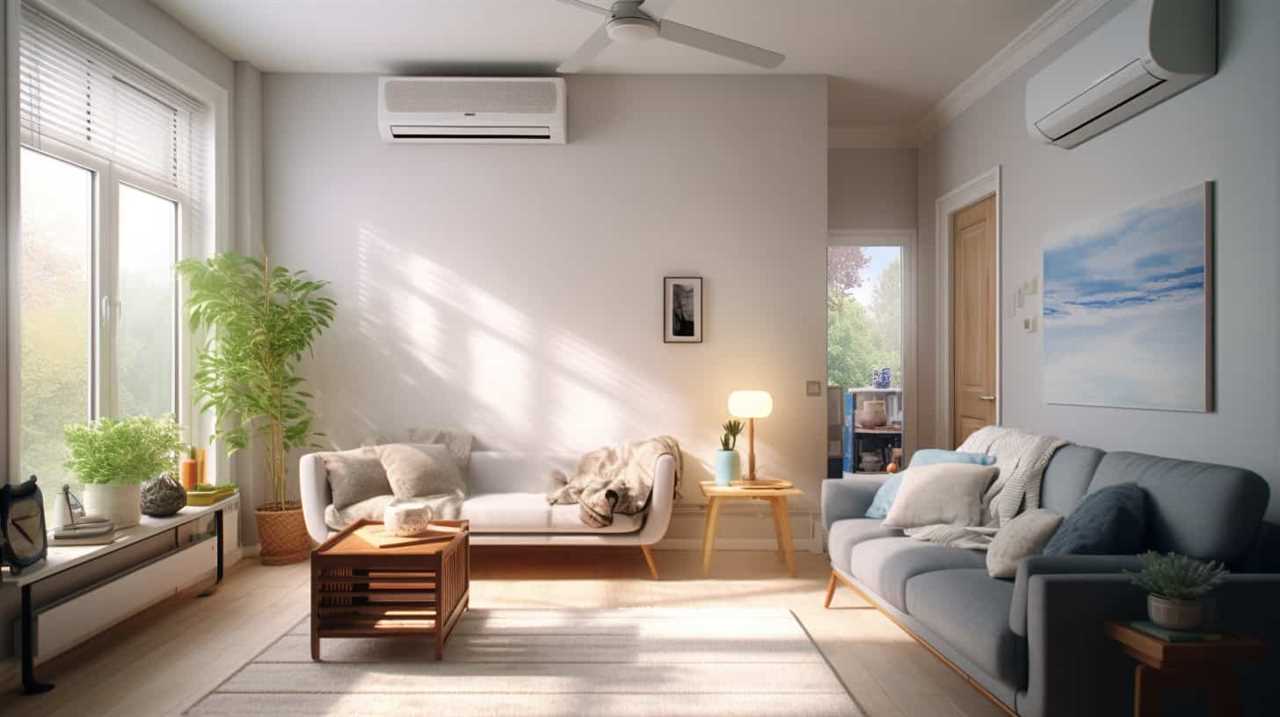
Climate: The temperature and humidity levels in your region can affect how hard the heat pump needs to work to maintain desired indoor temperatures.
Insulation: Proper insulation in your home helps to minimize heat loss, reducing the workload on the heat pump.
Sizing: Choosing the right-sized heat pump for your space is crucial. An oversized or undersized unit can lead to inefficient operation and higher electricity usage.
Thermostat settings: Optimal thermostat settings can help regulate temperature effectively, avoiding unnecessary energy consumption.

Maintenance: Regular maintenance, including cleaning filters and checking refrigerant levels, ensures that the heat pump operates efficiently and minimizes electricity usage.
Comparing Energy Consumption: Heat Pump Vs Traditional Heating Systems
There are several key differences in energy consumption between heat pumps and traditional heating systems.
When comparing the two, it becomes evident that heat pumps are a more energy efficient alternative for cost-effective heating. Heat pumps work by transferring heat from the outside air or ground into a building, rather than generating heat. This significantly reduces the amount of electricity required to provide heating.
Traditional heating systems, on the other hand, typically use combustion processes to generate heat, which can be quite energy-intensive.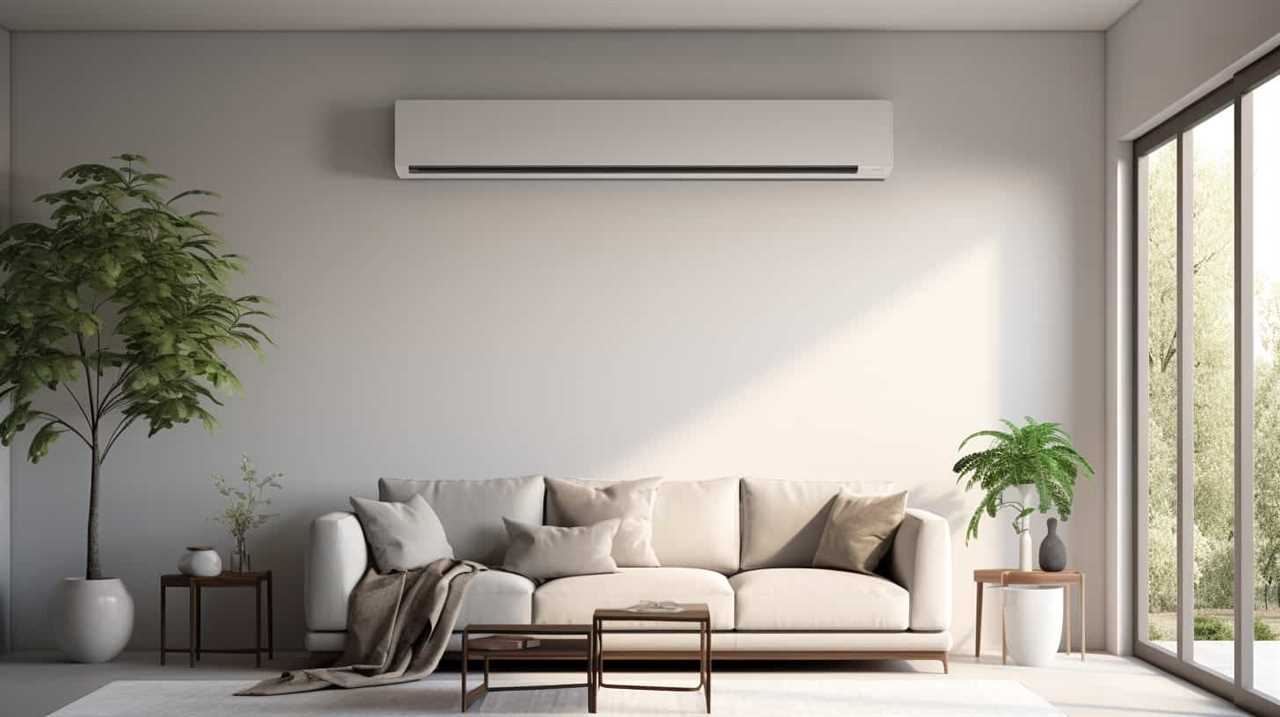
Heat pumps also have the advantage of being able to provide both heating and cooling, further increasing their energy efficiency.
Optimizing Heat Pump Performance for Lower Electricity Usage
To optimize heat pump performance and achieve lower electricity usage, we can implement various strategies and techniques. Here are five key approaches that can help in this endeavor:
Smart Thermostat Integration: By integrating a smart thermostat with your heat pump system, you can have greater control over temperature settings and scheduling, allowing you to optimize energy usage based on your specific needs and preferences.
Insulation Improvements: Enhancing the insulation of your home can significantly reduce heat loss and improve the overall efficiency of your heat pump. Proper insulation in walls, floors, and ceilings minimizes the need for your heat pump to work harder to maintain desired temperatures.
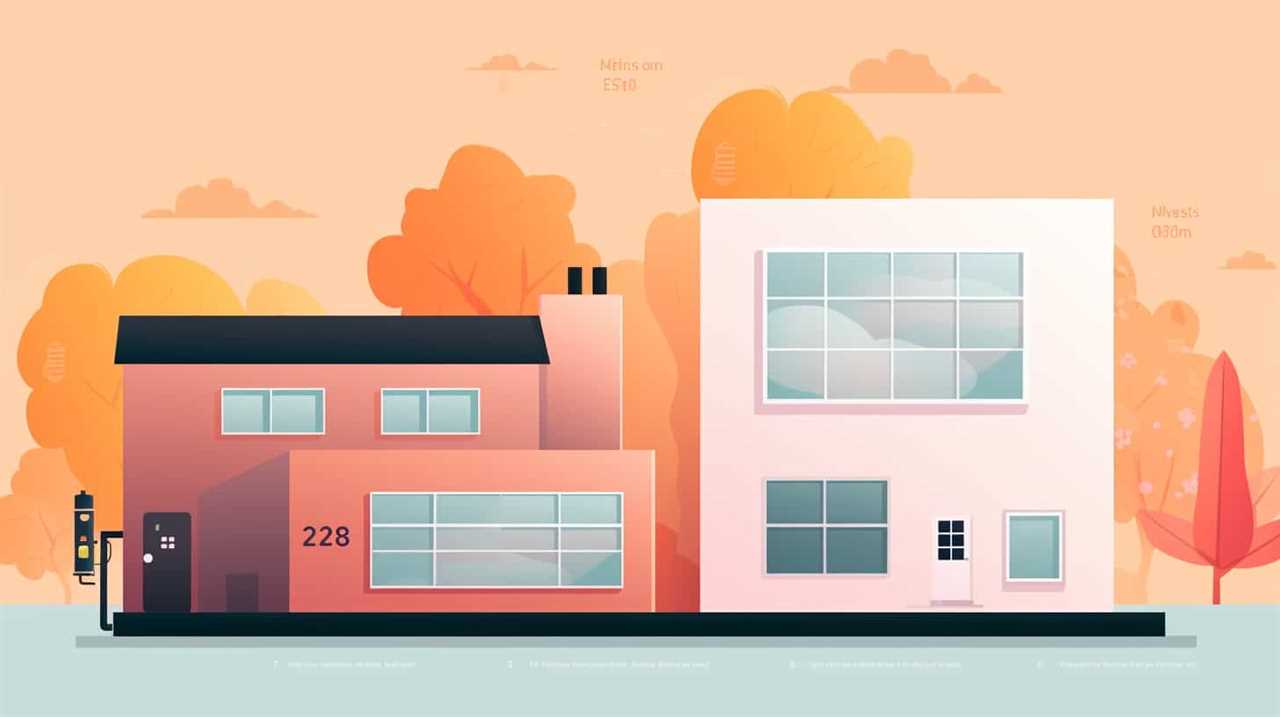
Regular Maintenance: Regularly servicing your heat pump ensures that it operates at its peak efficiency. This includes cleaning or replacing filters, checking refrigerant levels, and inspecting the overall functioning of the system.
Airflow Optimization: Ensuring proper airflow by keeping vents unobstructed and clean allows for efficient heat distribution throughout your home, reducing the workload on your heat pump.
Efficient Temperature Settings: Adjusting your thermostat to slightly lower temperatures in the winter and slightly higher temperatures in the summer can lead to noticeable energy savings without sacrificing comfort.
Energy-Saving Solutions for Heat Pump Electricity Consumption
To reduce heat pump electricity consumption, we can implement energy-saving solutions that optimize efficiency and minimize energy waste. Two effective strategies for achieving this are smart thermostat integration and insulation improvements. By integrating a smart thermostat with your heat pump system, you can take advantage of advanced features such as programmable schedules and remote control options. This allows you to optimize the temperature settings and reduce unnecessary energy usage. Additionally, improving insulation in your home can greatly reduce heat loss and improve the overall efficiency of your heat pump. Proper insulation helps to maintain a consistent indoor temperature, reducing the workload on the heat pump and minimizing electricity consumption. By implementing these energy-saving solutions, you can effectively reduce your heat pump’s electricity usage and save on energy costs.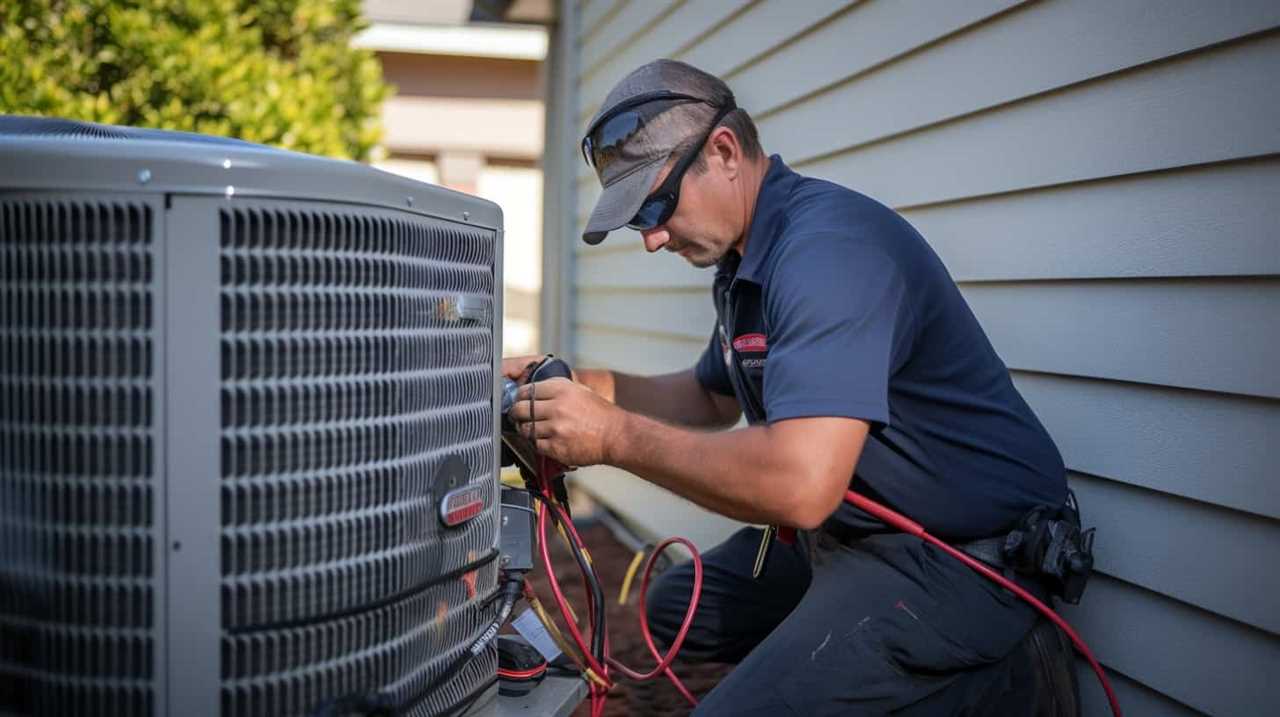
| Energy-Saving Solution | Description | Benefits |
|---|---|---|
| Smart Thermostat Integration | Integrating a smart thermostat with your heat pump system allows for advanced temperature control and scheduling options. This helps optimize energy usage and reduce unnecessary heating and cooling. | – Programmable schedules |
- Remote control options
- Increased energy efficiency | | Insulation Improvements | Improving the insulation in your home reduces heat loss and helps maintain a consistent indoor temperature. This reduces the workload on the heat pump and minimizes electricity consumption. | – Reduced heat loss
- Improved energy efficiency
- Consistent indoor temperature throughout the year |
Frequently Asked Questions
Are There Any Government Incentives or Rebates Available for Installing a Heat Pump?
Yes, there are government incentives and rebates available for installing a heat pump. These incentives can help offset the cost of installation and provide cost savings in the long run due to increased energy efficiency.
How Long Does a Heat Pump Typically Last Before It Needs to Be Replaced?
How long does a heat pump typically last before it needs to be replaced? We’ll explore the heat pump lifespan and the signs of heat pump replacement to help you understand when it’s time for an upgrade.
Can a Heat Pump Be Used to Cool a Home During the Summer Months?
Yes, a heat pump can be used to cool a home during the summer months. It functions by extracting heat from the indoor air and transferring it outside, resulting in a cooler indoor environment.
Are There Any Additional Maintenance Tasks Required for a Heat Pump Compared to Traditional Heating Systems?
There are additional maintenance tasks required for a heat pump compared to traditional heating systems. These tasks include regular filter cleaning or replacement, annual professional inspections, and ensuring proper airflow to optimize energy consumption.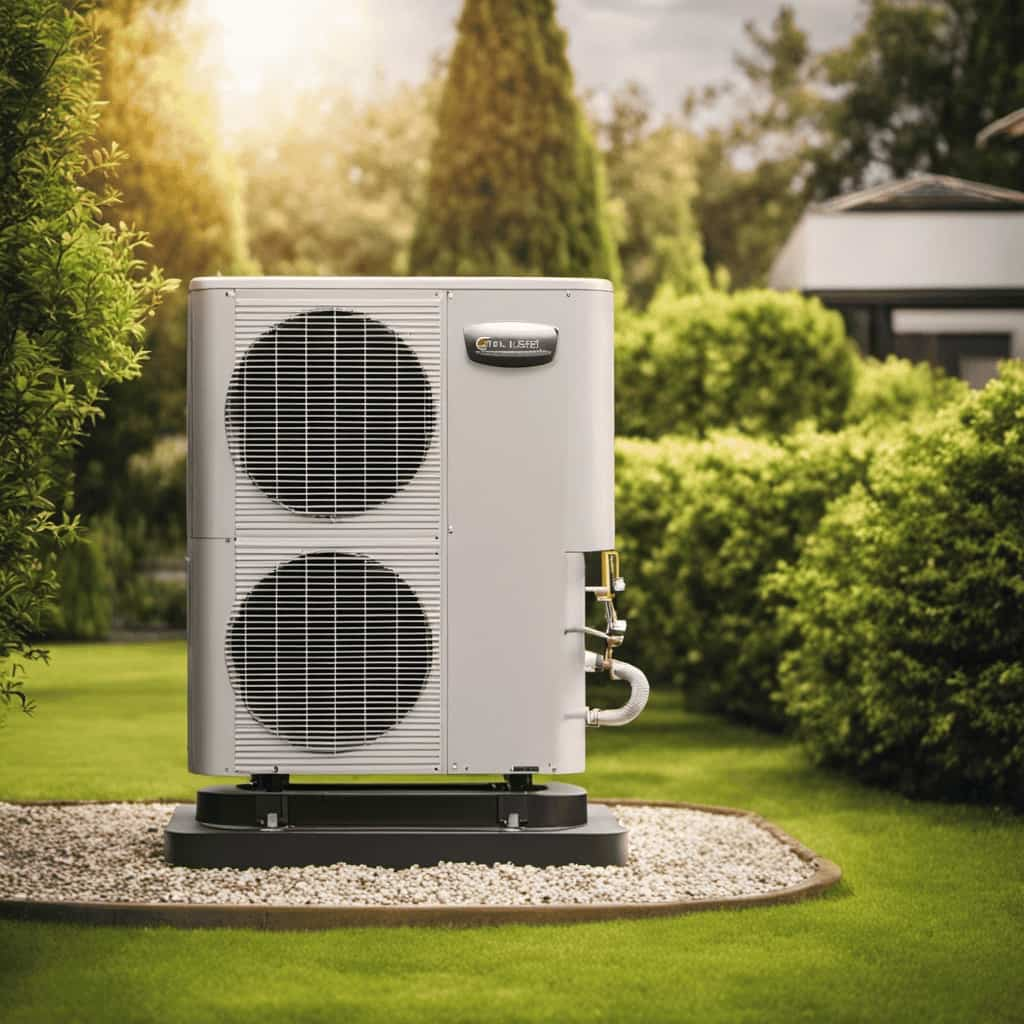
How Does the Efficiency of a Heat Pump Compare to Other Renewable Energy Sources Like Solar Panels or Geothermal Systems?
When comparing heat pump efficiency to other renewable energy sources like solar panels, it’s important to consider the pros and cons. Heat pumps offer efficient heating and cooling, but solar panels provide clean electricity generation.
What Should I Consider When Comparing HVAC Systems and Heat Pumps?
When comparing hvac systems vs heat pump, there are a few key factors to consider. First, evaluate the energy efficiency ratings of each system. The Seasonal Energy Efficiency Ratio (SEER) and Heating Seasonal Performance Factor (HSPF) are essential in determining their efficiency. Additionally, take into account the initial cost, installation requirements, and maintenance needs of both options. Lastly, consider the climate you live in, as this can impact the system’s performance and suitability for your home.
Conclusion
In conclusion, after analyzing the efficiency ratings and energy consumption of heat pumps compared to traditional heating systems, it’s clear that heat pumps offer significant advantages in terms of electricity usage.
By optimizing heat pump performance and implementing energy-saving solutions, users can further reduce their electricity consumption.
So, why settle for outdated and inefficient heating systems when heat pumps provide a smarter, more environmentally friendly solution?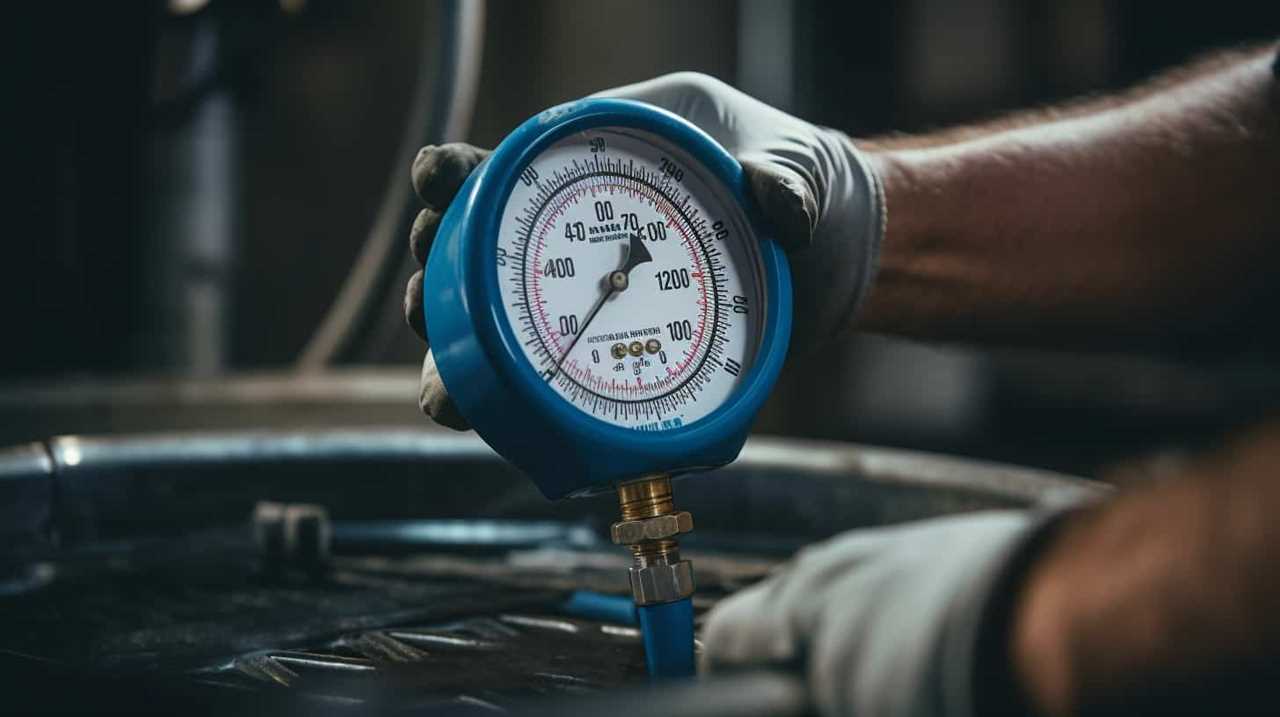
Embrace the future of heating and save both energy and money with heat pumps.
HVAC Systems
Defining ROI: Energy-Efficient Heat Pumps Analysis

We have come across an interesting fact: energy-efficient heat pumps can greatly affect your return on investment (ROI).
In this analysis, we delve into the financial benefits and long-term savings of these innovative devices. By understanding the cost-benefit analysis and factors affecting ROI, you can make informed decisions about implementing energy-efficient heat pumps.
Join us as we explore how this technology can revolutionize your energy consumption and contribute to a more sustainable future.
Key Takeaways
- Calculating ROI helps make informed decisions.
- Heat pumps reduce energy consumption and costs.
- Long-term savings outweigh initial costs.
- Rebates and incentives can reduce upfront costs and increase savings potential.
The Importance of ROI in Energy-Efficient Heat Pumps
We understand the importance of calculating ROI in energy-efficient heat pumps for making informed decisions.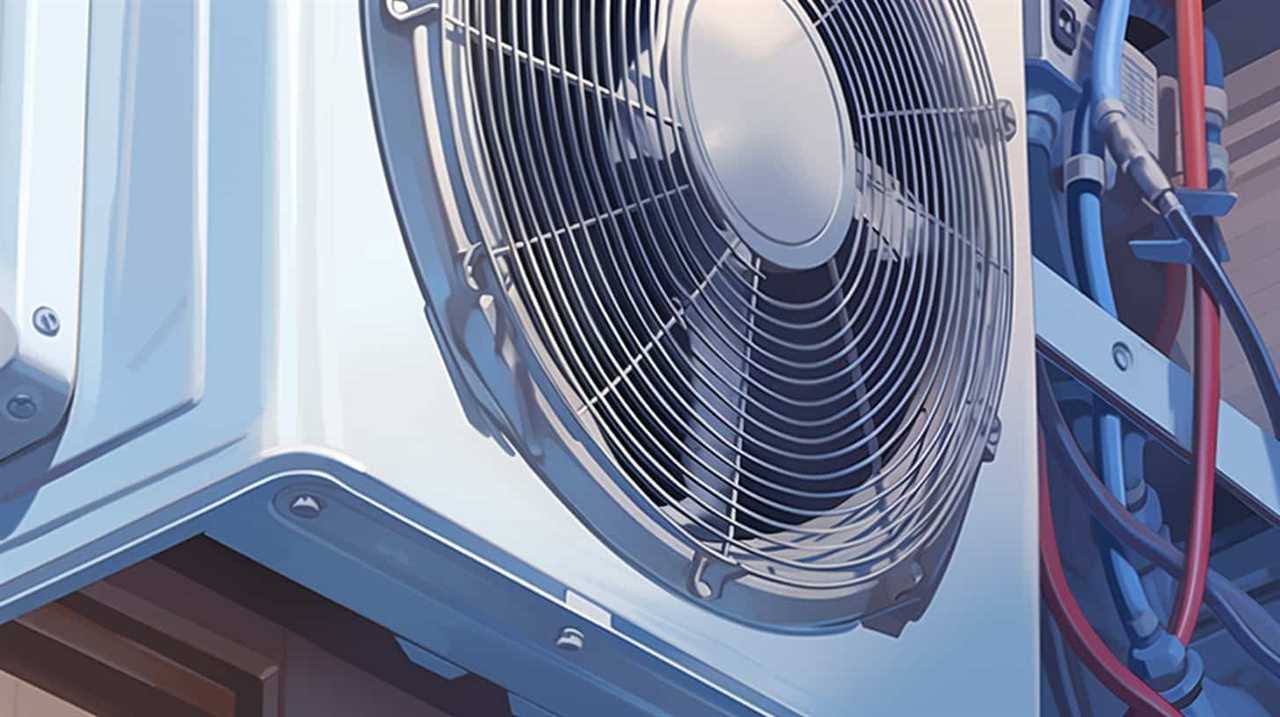
When it comes to investing in energy-efficient heat pumps, it’s crucial to consider the significance of calculating ROI.
By analyzing the relationship between energy savings and return on investment, we can determine the financial benefits of implementing energy-efficient heat pumps in our systems.
Calculating ROI allows us to evaluate the cost-effectiveness of these heat pumps and make informed decisions regarding their adoption.
By considering factors such as upfront costs, energy savings, and maintenance expenses, we can determine the payback period and overall financial viability of these investments.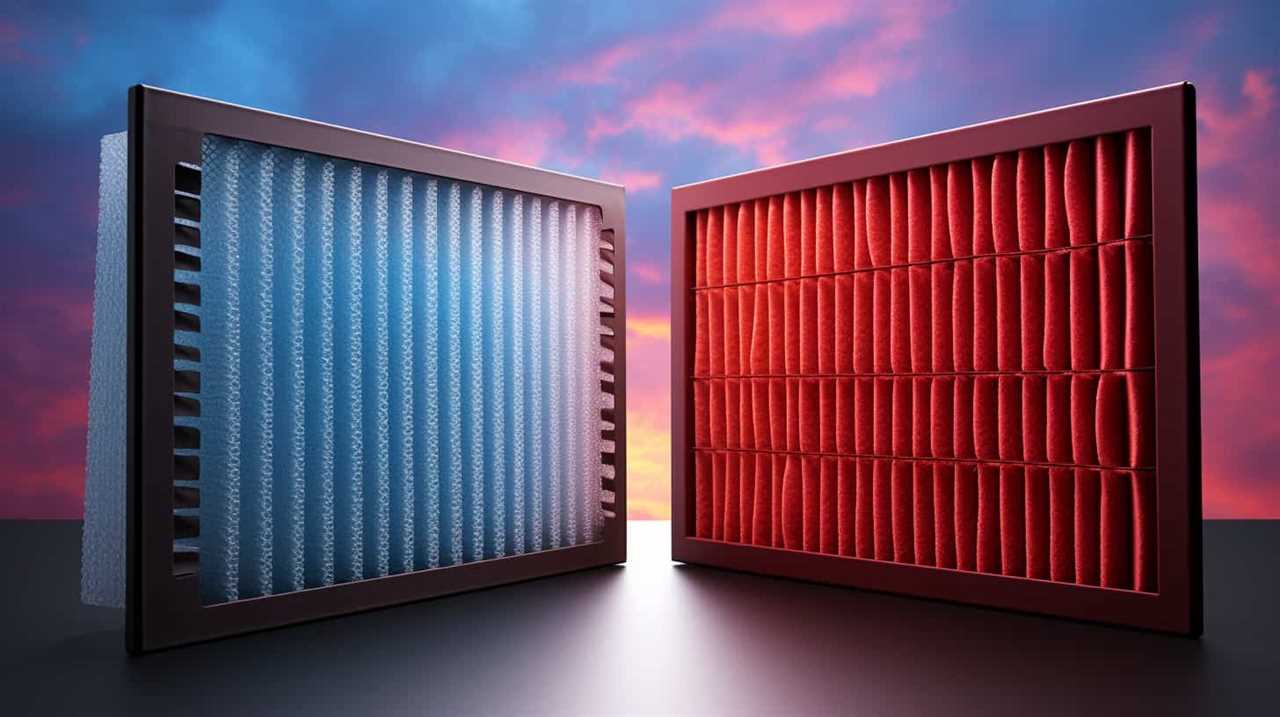
This analysis empowers us to prioritize and allocate resources effectively, ensuring that our energy systems aren’t only efficient but also financially sustainable.
Understanding the Cost-Benefit Analysis of Heat Pump Energy Efficiency
When conducting a cost-benefit analysis of heat pump energy efficiency, it’s essential to consider the financial implications and potential savings. A key component of this analysis is the cost effectiveness analysis, which evaluates the financial benefits of energy consumption reduction achieved through heat pump efficiency.
By comparing the initial investment in energy-efficient heat pumps with the projected savings in energy costs over the system’s lifespan, businesses and homeowners can determine the viability of implementing these technologies. The savings are achieved through reduced energy consumption, as heat pumps utilize renewable energy sources and operate more efficiently than traditional heating and cooling systems.
This cost effectiveness analysis provides a clear understanding of the financial benefits associated with energy-efficient heat pumps, allowing decision-makers to make informed choices regarding their adoption.
Now, let’s delve into the factors that can affect the return on investment (ROI) in energy-efficient heat pumps.
Factors Affecting ROI in Energy-Efficient Heat Pumps
As we explore the factors affecting ROI in energy-efficient heat pumps, it’s important to consider the upfront costs, energy savings, and maintenance expenses. These factors play a crucial role in determining the overall financial benefits of investing in energy-efficient heat pumps.
Firstly, upfront costs are a significant factor in calculating ROI. Energy-efficient heat pumps generally have a higher initial cost compared to traditional heating systems. However, the long-term energy savings they provide can offset this initial expense.
The potential for substantial energy savings is another factor to consider. Energy-efficient heat pumps utilize advanced technology to maximize energy efficiency, resulting in lower energy consumption and reduced utility bills.
Additionally, maintenance expenses should be taken into account when evaluating ROI. While energy-efficient heat pumps require regular maintenance to ensure optimal performance, they generally have lower maintenance costs compared to traditional heating systems.
By considering these factors, we can better understand the potential benefits of investing in energy-efficient heat pumps.
Now, let’s move on to the next section where we’ll analyze the financial benefits of these innovative systems.
Analyzing the Financial Benefits of Energy-Efficient Heat Pumps
To fully understand the financial benefits of energy-efficient heat pumps, we’ll analyze the cost savings and return on investment they offer.
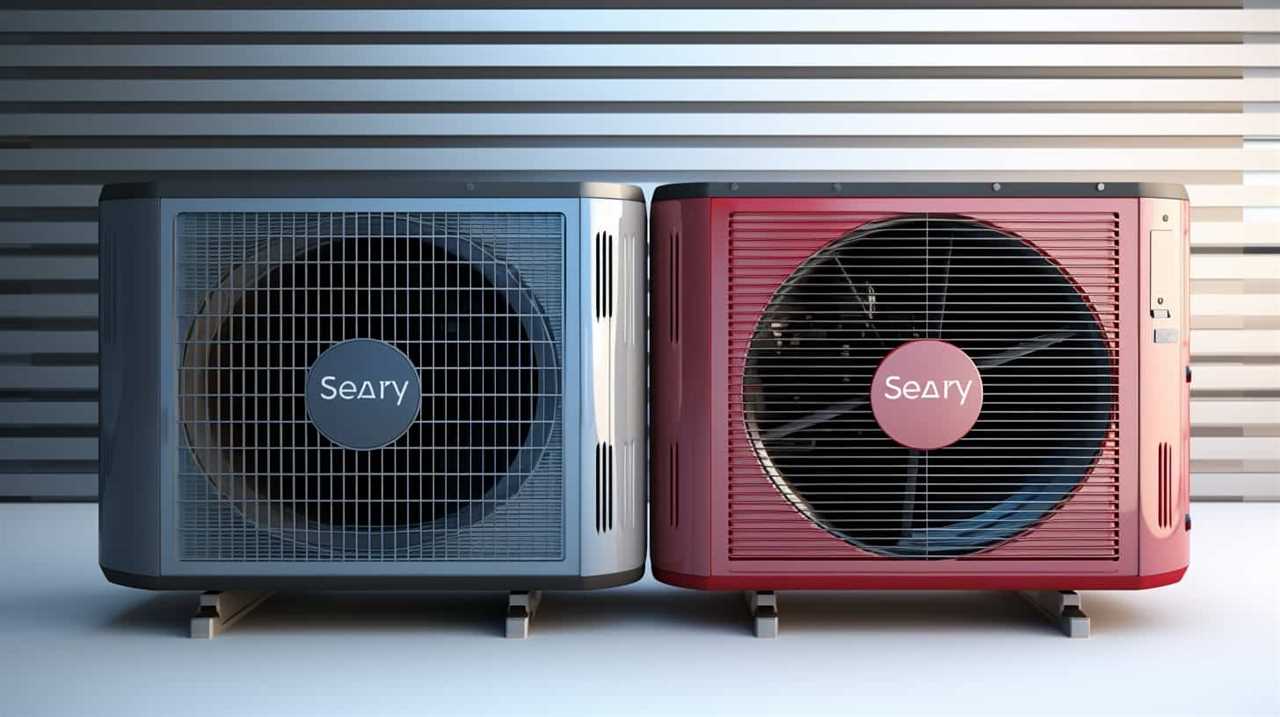
When it comes to the financial implications of energy-efficient heat pumps, the most significant advantage lies in the energy savings they provide. By utilizing advanced technology and efficient design, these heat pumps can significantly reduce energy consumption compared to traditional heating methods. This translates into lower energy bills for homeowners and businesses, resulting in substantial cost savings over time.
Additionally, the return on investment for energy-efficient heat pumps is often quite favorable. While the upfront costs may be higher than conventional heating systems, the long-term savings and reduced energy consumption make them a financially sound choice.
Evaluating the Long-Term Savings of Energy-Efficient Heat Pumps
We will assess the long-term savings of energy-efficient heat pumps and determine their financial viability.
When evaluating the performance of energy-efficient heat pumps and comparing models, the following factors should be considered:
Energy Efficiency: Look for heat pumps with high energy efficiency ratings, which indicate lower energy consumption and potential cost savings over time.
Operational Costs: Consider the maintenance and repair costs associated with different heat pump models. Lower operational costs can contribute to long-term savings.
Lifespan: Evaluate the expected lifespan of the heat pump models being compared. Longer lifespans can result in greater overall savings.
Rebates and Incentives: Research available rebates and incentives for energy-efficient heat pumps. Take advantage of these programs to maximize savings.

Frequently Asked Questions
How Does the Installation Process of Energy-Efficient Heat Pumps Affect the Roi?
The installation process of energy-efficient heat pumps significantly impacts the ROI. By optimizing the installation, we can ensure maximum energy savings, leading to a higher return on investment and increased efficiency for our innovative audience.
Are There Government Incentives or Rebates Available for Investing in Energy-Efficient Heat Pumps?
Yes, there are government incentives and rebates available for investing in energy-efficient heat pumps. These incentives provide financial benefits that can significantly impact the return on investment for individuals and businesses.
What Are the Maintenance Requirements for Energy-Efficient Heat Pumps and How Do They Impact the Overall Roi?
Maintenance costs for energy-efficient heat pumps can impact the overall ROI. Regular maintenance ensures optimal performance and extends the lifespan of the system. However, these costs are outweighed by the long-term savings in energy consumption.
How Does the Climate and Geographical Location Affect the Efficiency and ROI of Energy-Efficient Heat Pumps?
The climate impact and geographical factors play a significant role in the efficiency and ROI of energy-efficient heat pumps. These variables determine the unit’s performance and potential savings, making them crucial considerations for innovative solutions.
Are There Any Potential Risks or Drawbacks Associated With Investing in Energy-Efficient Heat Pumps That Could Impact the Roi?
There can be potential risks and drawbacks associated with investing in energy-efficient heat pumps that could impact the ROI. It is crucial to analyze factors like maintenance costs and potential technology obsolescence before making the investment.
What Factors Contribute to the Cost-Efficiency of Energy-Efficient Heat Pumps?
The cost-efficiency of energy-efficient heat pumps is influenced by several factors. Firstly, the upfront cost of purchasing and installing the heat pump plays a significant role. Additionally, the energy consumption and efficiency ratings of the pump impact its operating costs. Proper maintenance and insulation of the building also contribute to its cost-efficiency. Lastly, available government incentives and rebates can further enhance the overall cost-efficiency of energy-efficient heat pumps.
Conclusion
In conclusion, energy-efficient heat pumps offer a promising return on investment (ROI) for homeowners and businesses. By carefully analyzing the cost-benefit analysis and considering factors such as energy savings and long-term financial benefits, it’s clear that investing in these heat pumps can lead to significant savings and contribute to a more sustainable future.
Symbolically, energy-efficient heat pumps act as a beacon of efficiency, guiding us towards a greener and more cost-effective solution for heating and cooling needs.
HVAC Systems
Revolutionizing Climate Control: Green Heating Reduces Carbon Footprint

Are you aware that traditional heating methods account for a significant 30% of worldwide carbon emissions? It’s time for a shift.
In this article, we explore the revolutionary world of green heating and its potential to reduce our carbon footprint. By harnessing the power of renewable energy sources and prioritizing energy efficiency, we can pave the way towards a sustainable future.
Join us as we uncover the solutions that will liberate us from the shackles of harmful climate control practices.
Key Takeaways
- Conventional heating methods contribute significantly to global carbon emissions and have adverse effects on air quality and human health.
- Sustainable alternatives, such as heat pumps and renewable energy-powered heating systems, can significantly reduce emissions and reliance on fossil fuels.
- Geothermal and solar heating systems offer benefits such as lower greenhouse gas emissions, energy cost savings, and increased energy independence.
- Energy efficiency measures in heating systems play a vital role in reducing energy consumption, greenhouse gas emissions, and financial savings through lower utility bills.
The Environmental Impact of Conventional Heating Methods
We need to understand the environmental impact of conventional heating methods in order to make informed decisions about reducing our carbon footprint.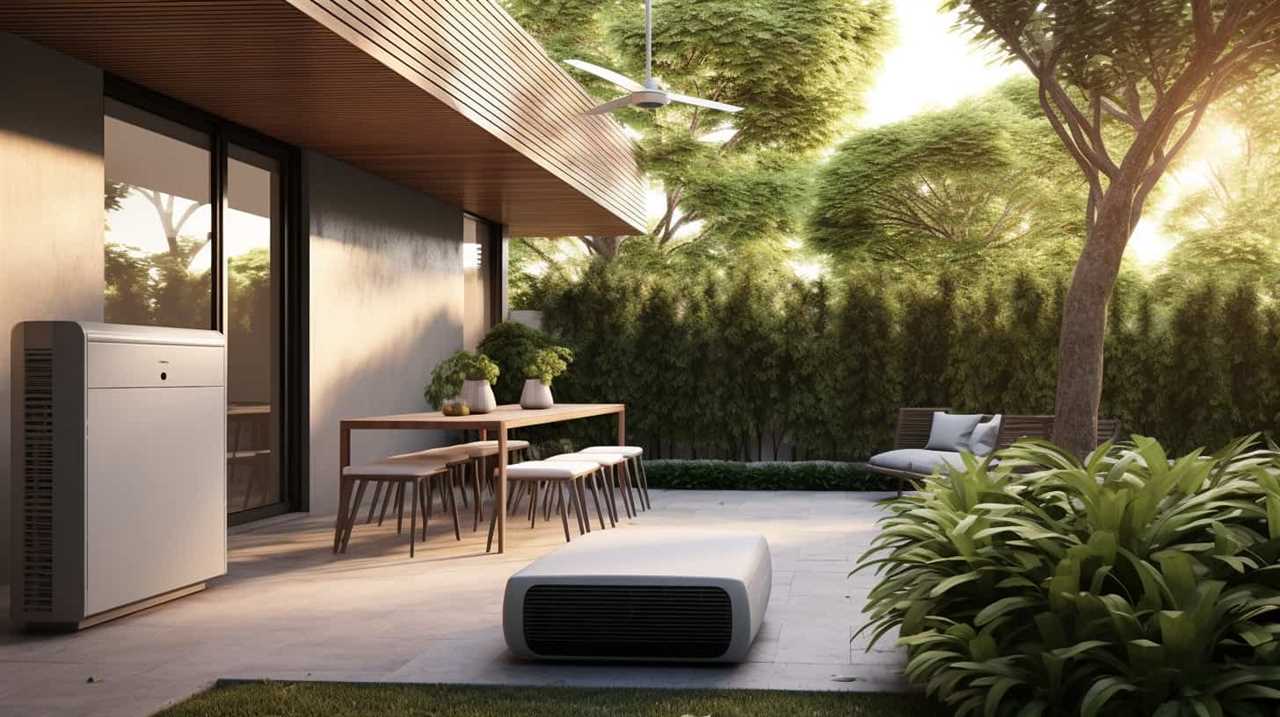
Conventional heating methods, such as the burning of fossil fuels, contribute significantly to greenhouse gas emissions. According to the United States Environmental Protection Agency, residential heating accounts for nearly a quarter of total emissions. These emissions not only contribute to climate change but also have adverse effects on air quality and human health.
It’s imperative that we explore sustainable alternatives to reduce emissions. One such alternative is the use of renewable energy sources, such as geothermal or solar heating systems. These systems harness clean energy, reducing our dependence on fossil fuels and minimizing carbon emissions.
Understanding Heat Pump Technology and Its Benefits
Heat pump technology offers numerous benefits in terms of energy efficiency and sustainability. Here are four key advantages of geothermal heating and heat pump efficiency:
Lower energy consumption: Heat pumps operate by transferring heat from one place to another, rather than generating heat themselves. This results in significant energy savings compared to traditional heating methods.
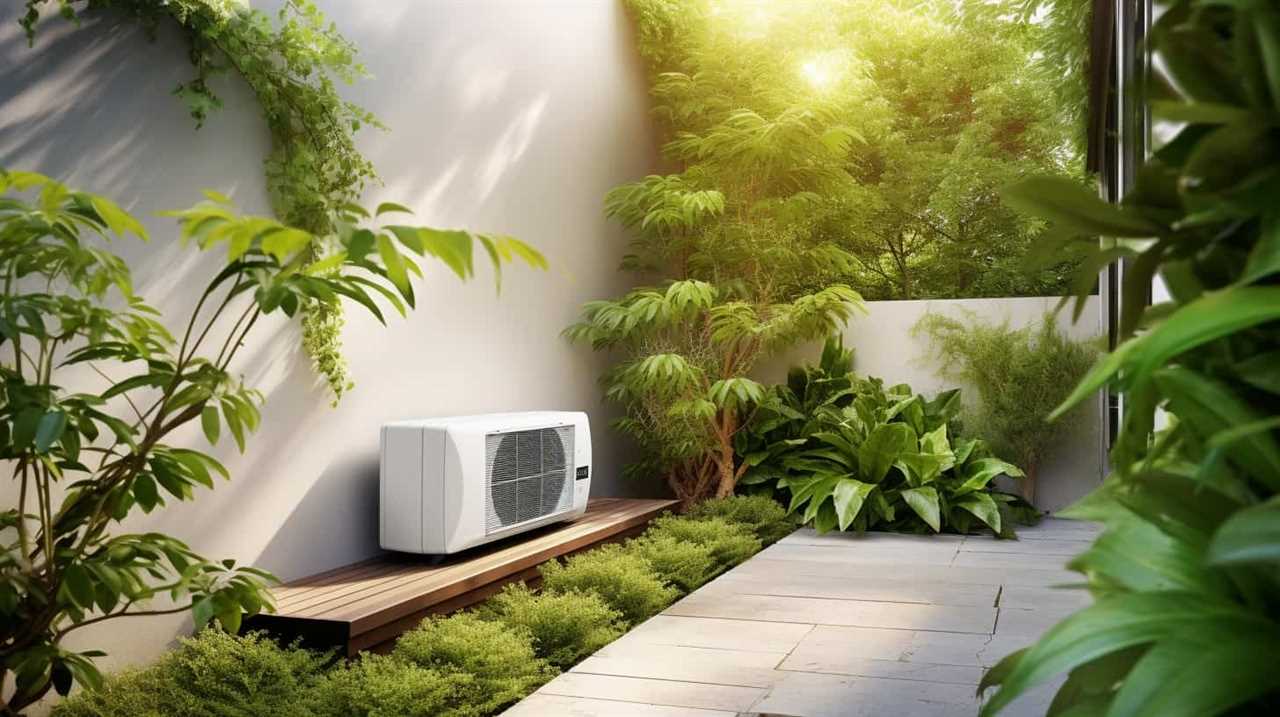
Reduced carbon footprint: By utilizing renewable energy sources, such as the heat from the ground or air, heat pumps emit fewer greenhouse gases than fossil fuel-based heating systems. This helps combat climate change and reduces our overall carbon footprint.
Year-round comfort: Heat pumps can provide both heating and cooling capabilities, making them versatile and suitable for all seasons. They can extract heat from the environment to warm your home in winter and reverse the process to cool it during summer.
Cost savings: Due to their high energy efficiency, heat pumps can lead to substantial cost savings on monthly utility bills. Additionally, geothermal heating systems have lower maintenance requirements and a longer lifespan compared to other heating systems, further reducing expenses.
Exploring Renewable Energy Sources for Heating
By harnessing the power of renewable energy sources, such as solar and geothermal, we can significantly reduce our carbon footprint while providing efficient heating solutions. Geothermal heating utilizes the Earth’s natural heat to warm our homes and buildings, while solar heating harnesses the energy from the sun. These renewable energy sources offer numerous benefits, including lower greenhouse gas emissions, lower energy costs, and increased energy independence.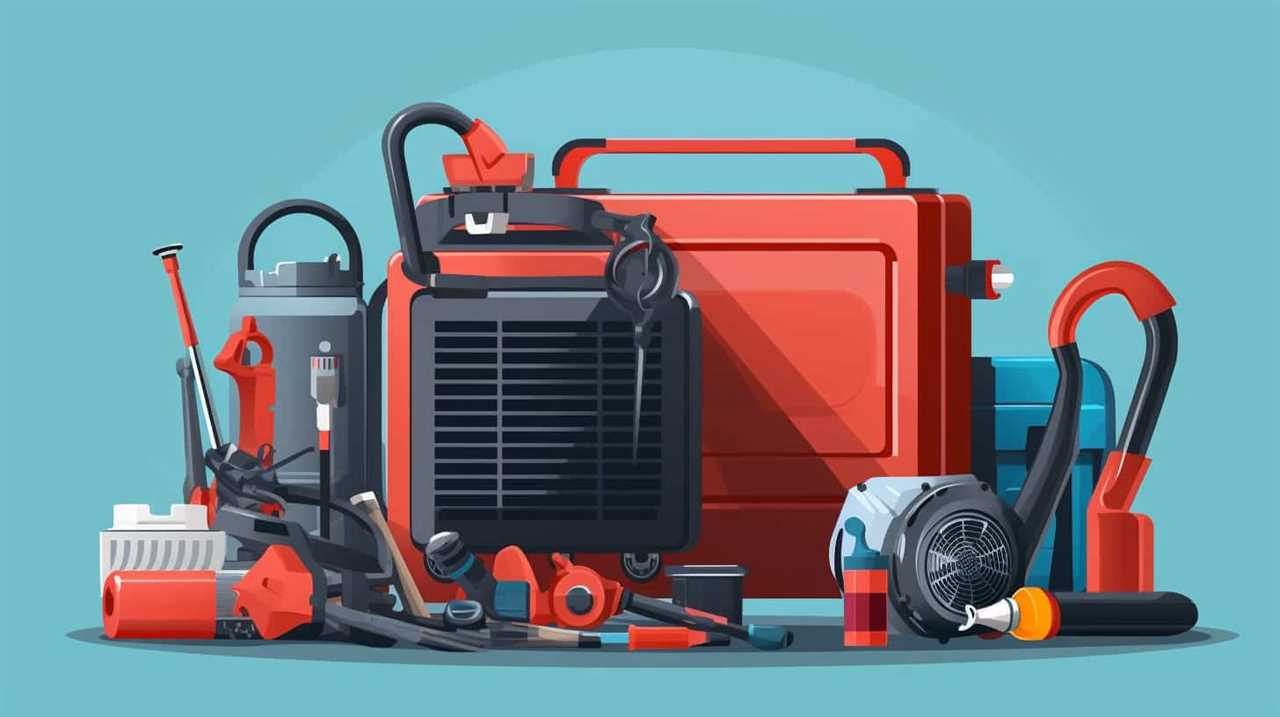
In geothermal heating systems, heat pumps are used to transfer the heat from the ground to the building, providing a reliable and constant source of warmth. Solar heating systems, on the other hand, use solar collectors to absorb the sun’s energy and convert it into heat, which is then used for heating purposes.
To better understand the advantages of geothermal and solar heating, let’s take a look at the following table:
| Renewable Energy Source | Advantages |
|---|---|
| Geothermal Heating | – High energy efficiency |
- Minimal environmental impact
- Reliable and constant heat supply | | Solar Heating | – Abundant and renewable energy source
- Reduced reliance on fossil fuels
- Lower energy costs |
The Role of Energy Efficiency in Reducing Carbon Footprint
One of the key ways to reduce our carbon footprint is by improving energy efficiency in our heating systems. By incorporating energy efficient appliances and sustainable building design, we can significantly decrease our energy consumption and greenhouse gas emissions.
Here are four reasons why energy efficiency plays a crucial role in reducing our carbon footprint:
Lower energy consumption: Energy efficient appliances are designed to use less energy while still providing the same level of comfort. This means less energy is needed to heat our homes, resulting in reduced carbon emissions.
Reduced reliance on fossil fuels: Energy efficiency measures can help us decrease our dependence on fossil fuels for heating. By using renewable energy sources such as solar or geothermal, we can further reduce our carbon footprint.
Financial savings: Energy efficient heating systems can lead to significant cost savings over time. By reducing energy consumption, homeowners can lower their utility bills and save money while also reducing their carbon footprint.
Climate change mitigation: Improving energy efficiency in heating systems is a practical and effective way to mitigate climate change. By reducing carbon emissions, we can contribute to the global effort to combat the adverse effects of climate change.

Green Heating Solutions for a Sustainable Future
As we look to the future, we can achieve a sustainable and eco-friendly heating system by implementing green heating solutions. Two key solutions that hold great promise are solar powered heating and geothermal technology. Solar powered heating utilizes the sun’s energy to generate heat, reducing our reliance on fossil fuels and lowering carbon emissions. This technology harnesses the power of solar panels to convert sunlight into usable energy for heating purposes. On the other hand, geothermal technology involves tapping into the Earth’s natural heat to warm our homes and buildings. By utilizing the constant temperature beneath the Earth’s surface, geothermal systems provide efficient and renewable heating. Both solar powered heating and geothermal technology offer viable alternatives to traditional heating methods, allowing us to reduce our carbon footprint while enjoying the benefits of a sustainable future.
| Solar Powered Heating | Geothermal Technology | |
|---|---|---|
| – Utilizes sunlight to generate heat | Taps into the Earth’s natural heat | |
| – Reduces reliance on fossil fuels | Provides efficient and renewable heating | |
| – Lowers carbon emissions | Utilizes constant temperature beneath the Earth’s surface | |
| – Utilizes solar panels | Offers a sustainable alternative to traditional heating methods | |
| – Provides a sustainable and eco-friendly heating solution | Allows for a reduction in carbon footprint |
Frequently Asked Questions
How Much Does It Cost to Install a Heat Pump System for Heating?
Cost of installing a heat pump system for heating varies based on factors like size, type, and location. However, a cost comparison shows that heat pumps are more energy-efficient in the long run, leading to significant savings.
Are There Any Government Incentives or Rebates Available for Switching to Green Heating Solutions?
Yes, there are government incentives and rebates available for switching to green heating solutions. These financial benefits can help offset the cost of installation and encourage the adoption of more environmentally-friendly heating systems.
What Is the Average Lifespan of a Heat Pump System Compared to Conventional Heating Methods?
The average lifespan of a heat pump system is significantly longer compared to conventional heating methods. This not only improves heat pump efficiency but also reduces the environmental impact of traditional heating methods.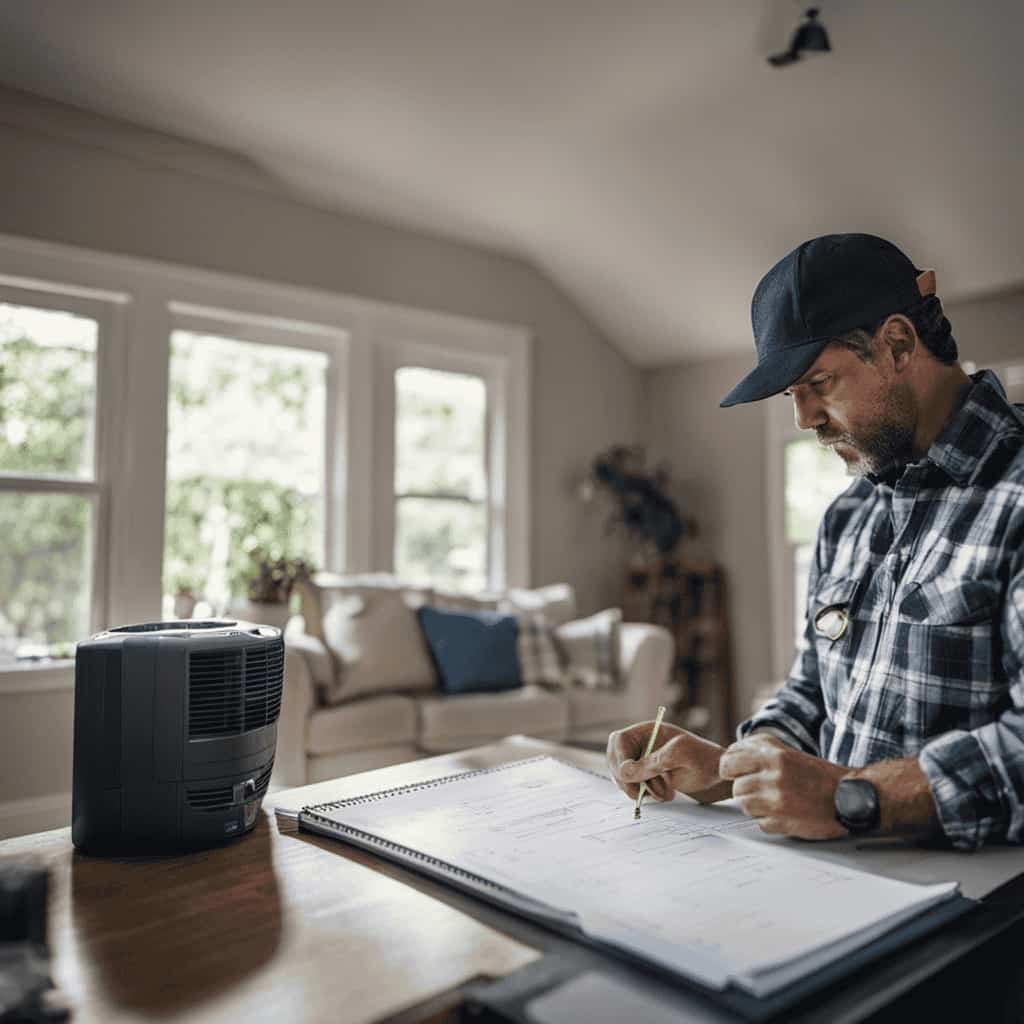
Can Green Heating Solutions Be Integrated With Existing Heating Systems in Older Homes?
Renovating older homes can be a challenge when retrofitting existing heating systems. However, with the right expertise and technology, integrating green heating solutions into older homes is not only possible but also a step towards liberation from carbon-intensive practices.
Are There Any Limitations or Drawbacks to Using Renewable Energy Sources for Heating?
There are limitations and drawbacks to using renewable energy sources for heating. These include higher upfront costs, intermittent energy generation, and the need for backup systems. However, with advancements in technology, these challenges can be overcome, leading to a greener and more sustainable future.
How Does Green Heating Using Heat Pumps Contribute to Reducing Electricity Usage?
Green heating using heat pump efficiency solutions significantly reduces electricity usage. Heat pumps extract renewable heat energy from the environment and use it to heat buildings. By doing so, they consume less electricity compared to traditional heating systems. Heat pump efficiency solutions optimize the performance of these systems, allowing them to provide heating and cooling with minimal electricity input. This reduces energy consumption, lowers carbon emissions, and contributes to a more sustainable and eco-friendly future.
Conclusion
In conclusion, green heating solutions have the potential to revolutionize climate control and significantly reduce our carbon footprint. By utilizing heat pump technology and renewable energy sources, we can achieve both energy efficiency and environmental sustainability.
One interesting statistic to note is that switching to green heating methods can reduce carbon emissions by up to 70%, making it a crucial step towards a more sustainable future.
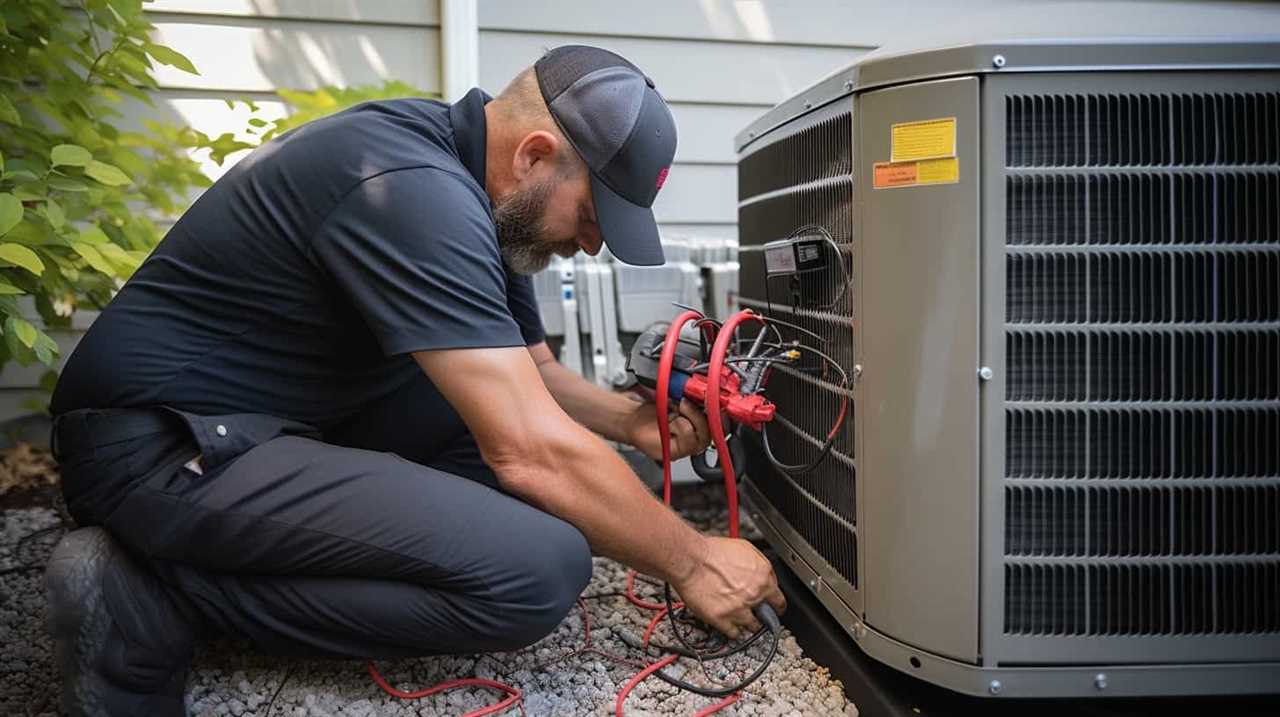
Let’s embrace these solutions and work towards a cleaner and greener planet.
-

 Residential and Commercial Applications2 weeks ago
Residential and Commercial Applications2 weeks agoBest Amana Heat Pump Reviews
-

 Thermal Energy Transfer2 weeks ago
Thermal Energy Transfer2 weeks agoBreakthroughs in Modern Heat Pump Systems: Thermal Energy Edition
-

 Residential and Commercial Applications2 weeks ago
Residential and Commercial Applications2 weeks agoBest Heat Pump
-

 Geothermal Heat Pumps3 months ago
Geothermal Heat Pumps3 months agoUpgrade Your Comfort with Our Efficient HVAC Systems
-

 Air Conditioning3 months ago
Air Conditioning3 months agoExploring Energy-Efficient Air Conditioning Heat Pumps
-

 Geothermal Heat Pumps3 months ago
Geothermal Heat Pumps3 months agoInnovative Geothermal Heat Pump Manufacturers Revolutionize Energy Efficiency
-

 Thermal Energy Transfer1 month ago
Thermal Energy Transfer1 month agoBoost Your Heat Pump Efficiency: Interactive Guide
-

 Residential and Commercial Applications2 weeks ago
Residential and Commercial Applications2 weeks agoBest Portable Heat Pump Heat & AC










